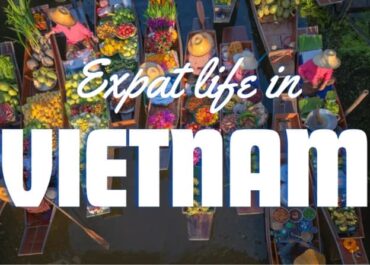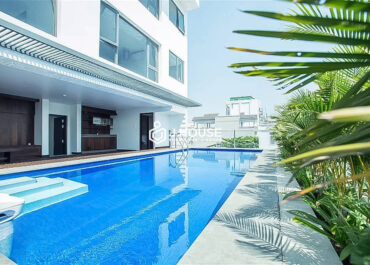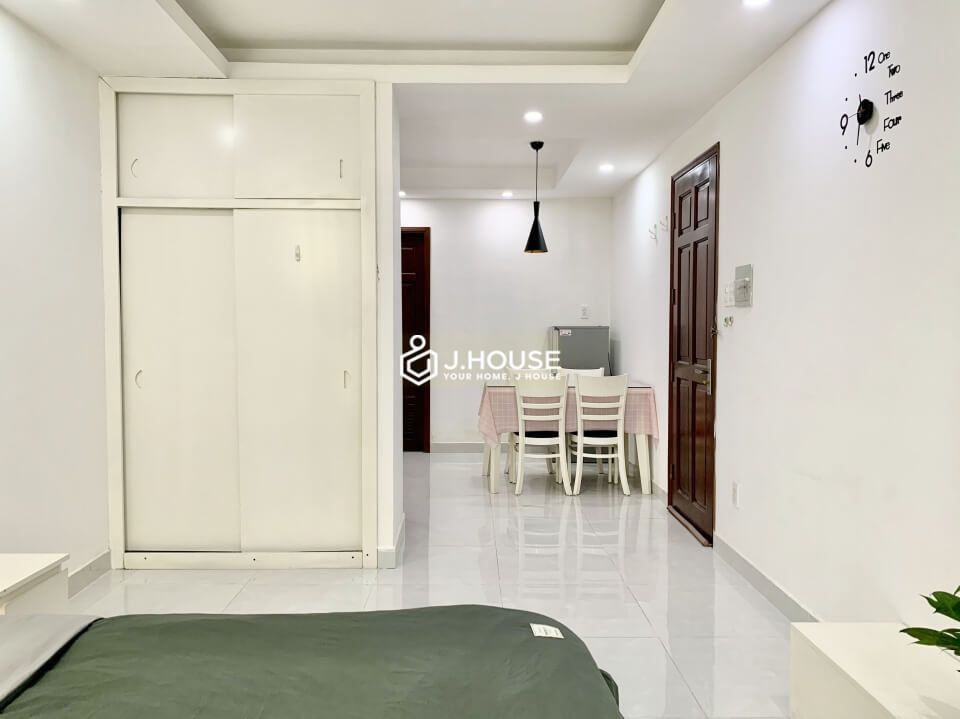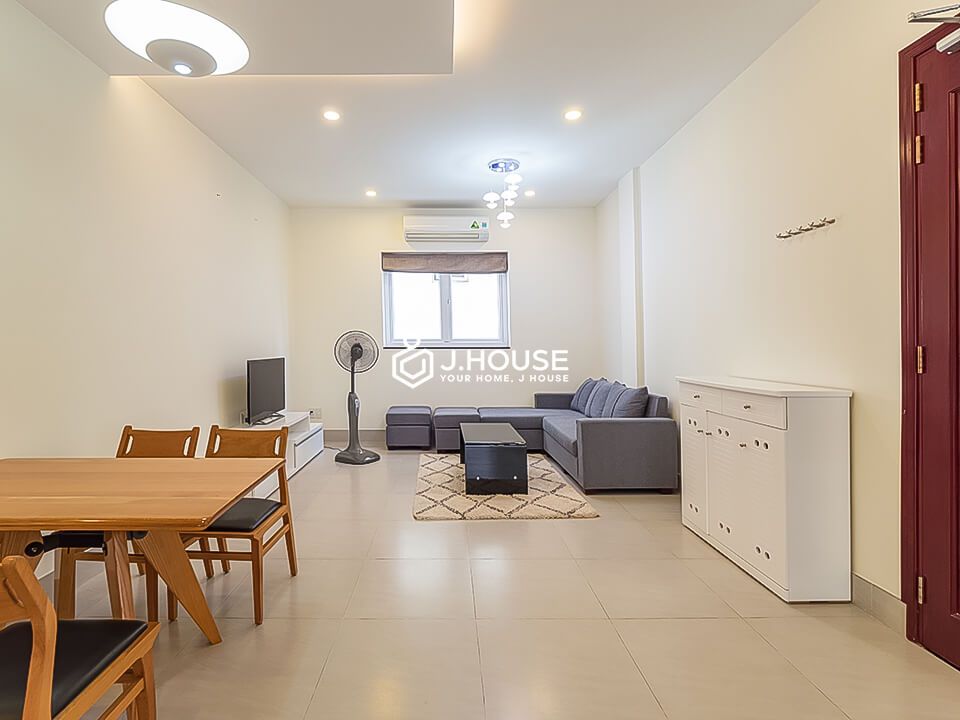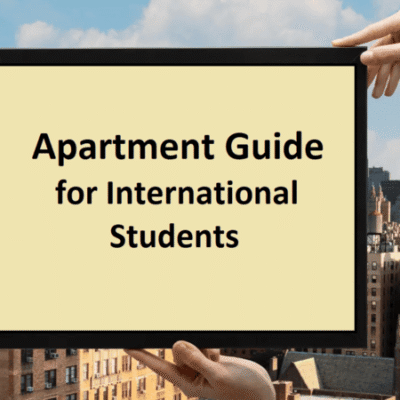Latest Properties
Blog Posts
Student Apartments in HCMC: The Ultimate Guide for Students
Student Rent in HCMC: Apartment Guide for International Students
For international students, finding the right student apartments in HCMC is often the first and most important step to settling into Vietnam. Living in Ho Chi Minh City means more than studying — it’s about independence, cultural discovery, and building new connections. The city is full of affordable, diverse housing options, but navigating rent prices, choosing safe districts, and adapting to daily life can feel overwhelming at first.
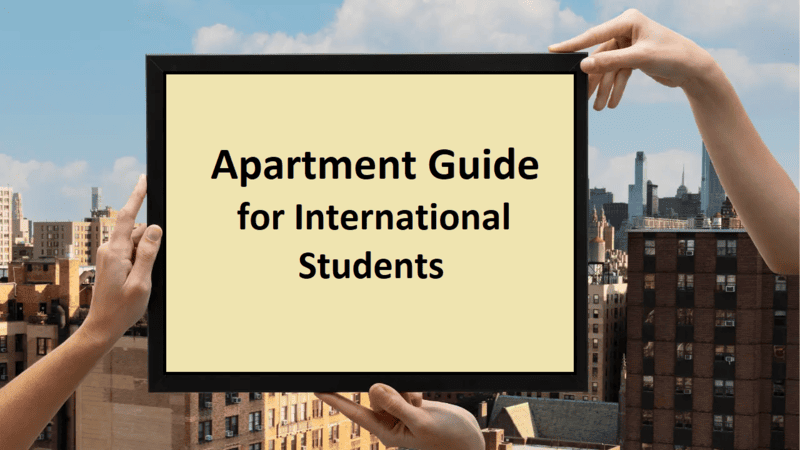
That’s why this guide brings everything together in one place: from budgeting tips and legal advice to lifestyle insights and community support. Whether you’re looking for a shared apartment near campus, a modern serviced studio, or the best areas for food and social life, you’ll find practical answers here.
Start your journey in Saigon with confidence and make your student life truly rewarding.
Why Student Apartments in HCMC Are Different
Ho Chi Minh City, often called Saigon, is a dynamic hub where tradition meets rapid modern growth. For international students, this creates a housing market unlike anywhere else.
Options range from budget-friendly shared apartments and mini Vietnamese-style flats to modern serviced studios that include cleaning and security. Rent can be affordable, but it shifts significantly by district — cheaper in local neighborhoods, higher in expat hubs near international schools and universities.
More than just cost, student apartments in HCMC reflect Vietnam’s energetic, community-driven lifestyle. Living with local students or other internationals often means shared meals, late-night study sessions, and friendships that define your time abroad. Choosing the right place isn’t only about rent — it’s about finding a balance of safety, convenience, affordability, and cultural connection in one of Asia’s most vibrant student cities.
Read more: International Student Life in HCMC: Culture, Safety & Daily Life
1. Choosing Where to Live: Districts & Affordable Housing Options
Where you live in Ho Chi Minh City greatly influences your student experience. Each district offers something different:
- District 1: Central, lively, convenient for universities, but the rent is higher.
- District 3: Affordable, local vibe, great food, close to District 1.
- District 7: Modern, quieter, popular with expats, higher rent.
- Thu Duc City: Close to universities, cheaper student rent, vibrant student community.
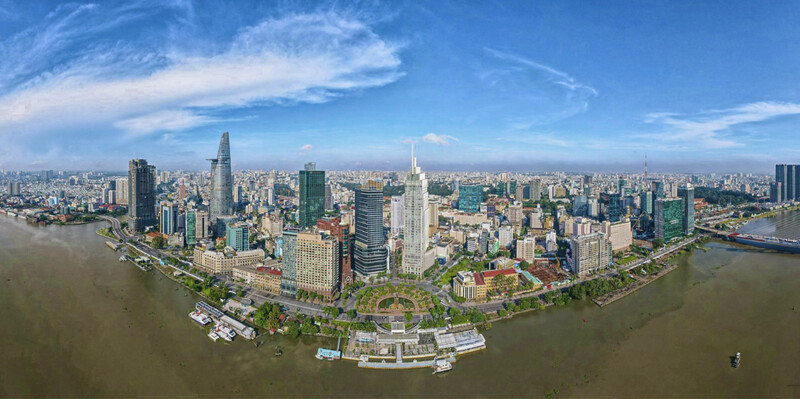
Finding affordable student housing in HCMC takes some strategy. Many students begin with short-term rentals or serviced apartments before committing to long-term rentals. Shared apartments, small studios, or Vietnam’s unique “mini flats” are popular budget-friendly choices. Online groups, expat forums, and university boards often list reliable options, while proximity to campus or public transport saves both time and money.
In the end, choosing a student apartment in HCMC can give you independence, daily comfort, and a chance to connect with both local culture and new friends.
Read more: Best Districts in HCMC for International Students
2. Student Apartment Costs in HCMC: Rent, Bills & Budget Tips
Living in Ho Chi Minh City is more affordable than in many Asian cities, but costs vary depending on your housing choice and lifestyle. On average, international students spend:
- Shared apartments: $150–$300/month
- Studios or 1-bedroom units: $250–$600/month
- Utilities & internet: $40–$70/month
- Food & transport: $150–$250/month
That means the average monthly rent for international student apartments in HCMC, plus living expenses, usually falls between $400–$800.
Finding affordable student housing in HCMC requires smart budgeting. Many students save money by sharing an apartment, cooking at home, or shopping in local markets instead of international supermarkets. Choosing a place outside the city center or starting with a smaller studio also helps stretch your budget.
Read more: Money-Saving Tips for International Students Renting in HCMC
In the end, managing costs isn’t just about cutting expenses — it’s about creating balance. A thoughtful budget allows you to enjoy cultural experiences, weekend trips, and student life in Vietnam without financial stress.
Read more: Student Apartment Costs in HCMC: Rent, Utilities, Living Expenses
3. Legal & Safety Essentials for Renting in Vietnam
Renting as an international student in Vietnam means more than just finding a nice apartment — it’s about protecting yourself legally and ensuring you feel safe in daily life. Understanding the basics before you sign a lease makes the process smoother and helps you avoid costly mistakes.
Legal essentials:
- Contracts should be in both Vietnamese and English.
- Landlords usually request 1–2 months’ deposit.
- Rent, utilities, and internet fees must be clearly stated.

Safety essentials:
- Check for fire safety equipment and secure locks.
- Keep valuables safe, especially in shared housing.
- Visit the area at night to see how safe it feels.
Working with reliable agencies like JHouse also reduces risks, helping you avoid scams, hidden fees, or unclear agreements. In the end, legal awareness and safety checks give you confidence to focus on what matters most — studying and enjoying your student life in Vietnam.
Read more: How to Rent Student Apartments in Vietnam: Legal Guide & Tips
4. Student Apartment Life: Must-Have Amenities & Daily Living
What makes a student apartment in Ho Chi Minh City truly suitable isn’t just price — it’s how well it supports your daily life and studies. A comfortable, well-equipped space can make all the difference in balancing academics, social life, and personal comfort.
Essential amenities:
- Strong Wi-Fi for online classes, research, and streaming.
- Air conditioning to stay cool in HCMC’s tropical heat.
- Washing machine or access to nearby laundry services.
- Secure parking if you plan to use a motorbike.
Daily life in HCMC offers plenty of conveniences for students. Cafés and co-working spaces provide ideal spots for focused study or group projects, while affordable gyms, yoga studios, and recreational facilities help maintain a healthy lifestyle. With 24/7 convenience stores and local markets nearby, daily errands are quick and easy.
Choosing a student apartment with the right combination of amenities and location allows you to focus on learning, explore the city comfortably, and enjoy a balanced, vibrant student life in HCMC.
Read more: Must-Have Amenities in a Student Apartment in Ho Chi Minh City
5. Health & Well-being Tips
Taking care of your health is essential for a successful student life in HCMC. For international students, having proper health insurance ensures access to quality medical care without unexpected costs. Local clinics and international hospitals provide reliable services, and some universities offer on-campus health support.

Creating a comfortable living space also plays a key role in well-being. Good lighting, ventilation, and a quiet study area help maintain focus and reduce stress. Balancing academics with regular breaks, exercise, and proper sleep supports both mental and physical health. Simple routines like morning stretches, weekend walks, or joining a fitness class can make student life more enjoyable and sustainable in a fast-paced city like Ho Chi Minh City.
Read more: Safety Tips for International Students Renting Apartments in HCMC
6. Tools, Apps & Building Your Community
Moving to HCMC can feel overwhelming at first, but the right tools and a strong community make student life easier and more enjoyable. Essential apps for international students include:
- Grab – for rides and food delivery
- Momo & ZaloPay – mobile payments
- Google Translate – daily communication help
- Facebook groups – student housing tips and connecting with peers
Read more: Essential Apps & Resources for International Students in Vietnam
Equally important is finding your social circle. Many students join university clubs and sports teams, language exchanges, or co-working and café study groups, while international student communities on social media provide advice and support. Building these connections transforms your stay in Vietnam from merely “living abroad” into a truly fulfilling experience of belonging.
Read more: International Student Guide: Friends & Community in HCMC
7. Getting Around HCMC: Transport Tips for Students
Getting around Ho Chi Minh City efficiently can make a huge difference in your daily student life. Many students rely on motorbikes, whether rented or purchased, for quick and flexible travel. Grab offers convenient ride-hailing and food delivery services, while public buses provide an affordable option for longer distances. The metro, currently expanding, will soon make commuting even faster and more reliable.

When choosing a student apartment, consider proximity to your university and access to public transport. Living close to campus or bus stops not only saves money but also reduces travel stress, giving you more time for studying, socializing, or exploring the city. Planning your routes and combining transport options can turn daily commuting into a smooth, stress-free part of student life in HCMC.
Read more: How to Find Affordable Student Apartments in Ho Chi Minh City
8. Culture, Food & Fun Beyond the Apartment
Life in HCMC isn’t just about classes or your apartment — it’s about immersing yourself in a city full of culture and flavor.
Weekends bring endless opportunities: explore museums, browse bustling street markets, relax in riverside cafés, or take day trips to Cu Chi tunnels and Vung Tau beaches. Street food is another highlight, from bánh mì and phở to fresh fruit smoothies — eating local is both affordable and a deep dive into Vietnamese culture.
Read more: Weekend Activities and Must-Visit Places for Students in HCMC
Festivals like the Mid-Autumn Festival, Tết, and university fairs bring students together, creating community and unforgettable memories. Your apartment provides the base, but your education truly continues in the city’s streets, flavors, and friendships.
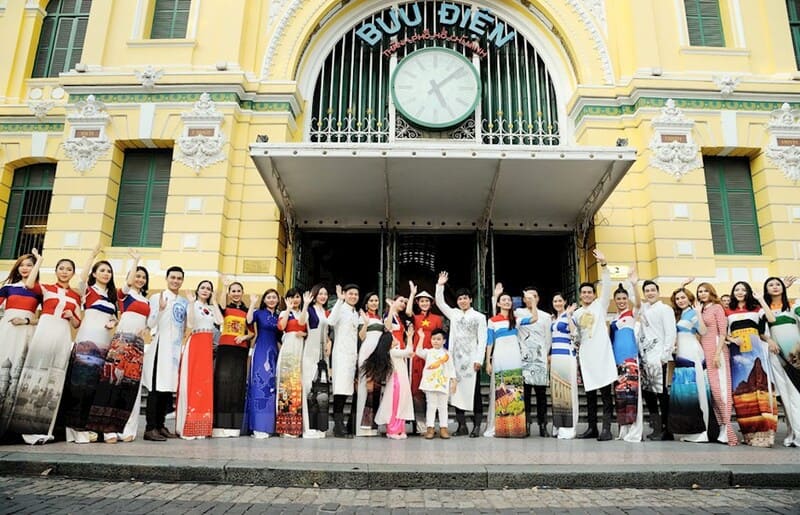
Read more: Street Food Guide for International Students in Ho Chi Minh City
Final Thoughts: More Than Just Student Apartments in HCMC
Choosing the right student apartments in HCMC shapes more than where you live — it sets the tone for your entire international student experience. A well-chosen district, clear rental agreements, smart budgeting, safety, and a welcoming community create the foundation for both academic success and personal growth.
Beyond mere convenience, the right apartment offers daily comfort, cultural immersion, and opportunities to build friendships that last a lifetime. At JHouse, we help students find homes that support independence, exploration, and meaningful connections.
For international students, your apartment isn’t just a place to stay — it’s where your journey in Vietnam truly begins, where memories, growth, and adventure unfold, and where lifelong experiences await.
JHouse Content Team
The in-depth content development team on housing services for foreigners & Vietnamese in Vietnam. The content is simple, easy to understand, and logically arranged to bring readers useful topics and information from real experiences.
Street Food Guide for International Students in Ho Chi Minh City
Explore Vietnamese Street Food in HCMC: A Student’s Handy Guide
Street food in Ho Chi Minh City is more than a quick bite — it’s an adventure into Vietnam’s rich culture and everyday life. For international students, the colorful stalls, sizzling woks, and tempting aromas are both exciting and a little intimidating.
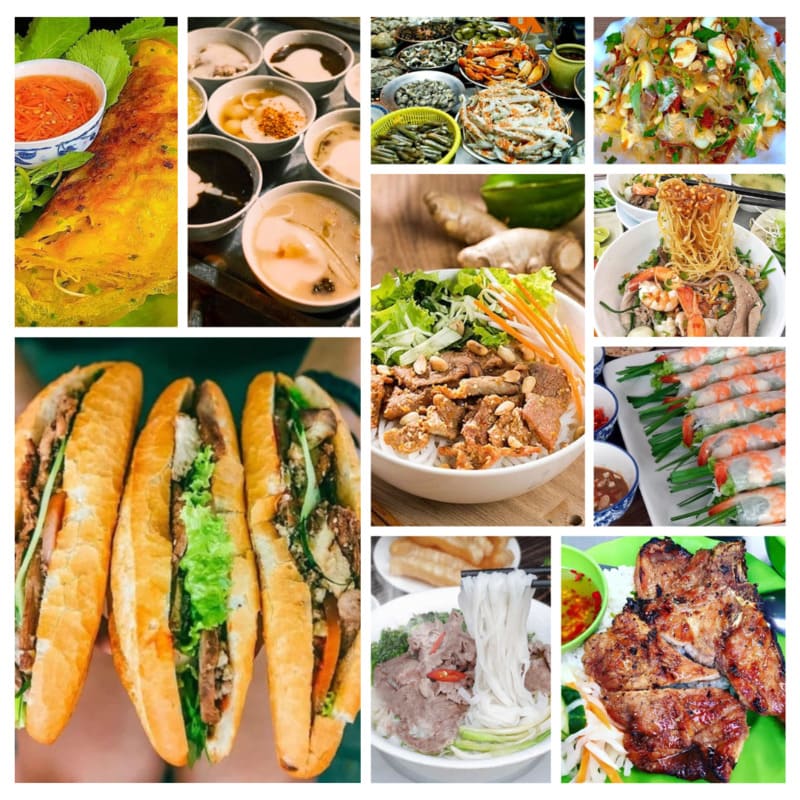
Maybe you’re unsure about prices, hygiene, or simply where to begin. The good news? Street food here is not only safe and affordable but also one of the best ways to connect with locals and manage your student budget.
In this guide, you’ll discover must-try dishes, insider tips, and practical advice to enjoy Vietnamese street food like a local while making your student life in HCMC more flavorful, memorable, and full of authentic experiences that go far beyond the classroom.
Why Street Food Matters for International Students
Street food in Ho Chi Minh City is more than just an affordable meal — it’s part of the rhythm of student life. For international students, sitting down with a hot bowl of noodles, grabbing a bánh mì after class, or enjoying a sweet dessert on the street corner brings both comfort and connection. Prices usually range from only 20,000–50,000 VND, making it easy to stick to a student budget.
Beyond affordability, street food is everywhere, ready to satisfy a quick lunch or a late-night craving. Each dish carries the flavors of Vietnam’s traditions, offering a chance to connect with local culture in a genuine way. Accessible, budget-friendly, and endlessly varied, street food becomes a daily bridge between study life and the vibrant spirit of HCMC.
Explore more: International Student Life in HCMC: Culture, Safety & Daily Life
Top Street Food Dishes Every Student Must Try
Ho Chi Minh City’s street food scene is bursting with flavors, and some dishes are absolute musts for international students who want to taste Vietnam like a local.
1. Bánh mì – Vietnam’s Iconic Street Food
The iconic bánh mì is a true symbol of Vietnamese street food and a perfect first bite for newcomers. Stuffed with grilled pork, chicken, or vegetarian fillings, balanced by fresh herbs and tangy pickles, this crunchy baguette delivers big flavors in every bite. Best of all, it’s budget-friendly, usually costing around 25,000 VND — making it an ideal choice for students on the go.
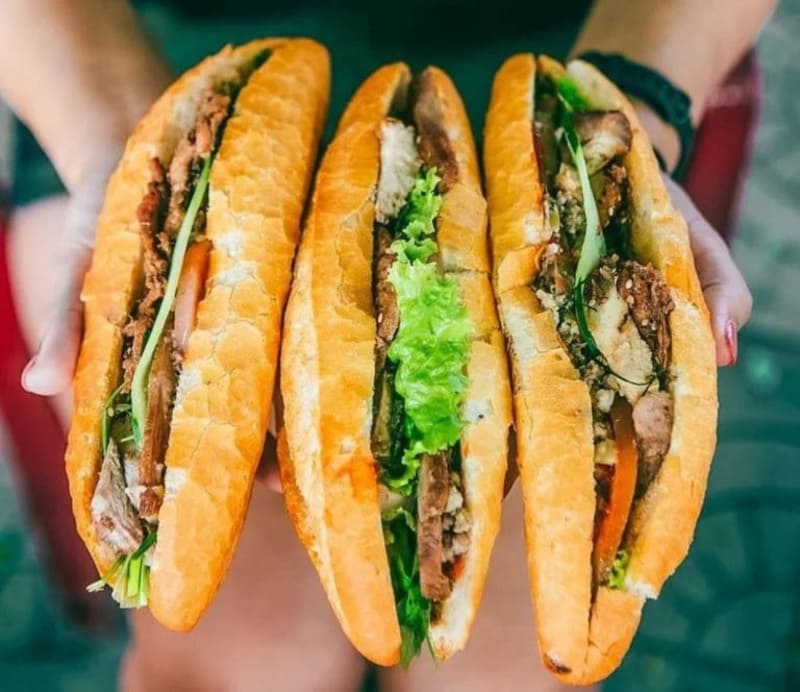
2. Phở – The National Noodle Soup
Famous worldwide, phở is Vietnam’s signature comfort food. A steaming bowl typically comes with beef or chicken, flat rice noodles, fresh herbs, and a fragrant broth simmered for hours. For students, grabbing a hot bowl at a morning street stall is not only affordable (around 40,000–50,000 VND) but also a nourishing way to start the day like a local.
3. Cơm tấm – Saigon’s Signature Rice Dish
A true Saigon classic, cơm tấm is broken rice served with grilled pork chop, fried egg, pickled vegetables, and a drizzle of sweet–savory fish sauce. What makes it special is the smoky aroma of the meat paired with the comforting texture of rice. For students, it’s a filling and budget-friendly option, usually priced around 35,000–45,000 VND per plate.
4. Gỏi cuốn – Fresh Spring Rolls
A light and refreshing snack, gỏi cuốn is perfect for a quick energy boost during study breaks. Made with rice paper, shrimp or pork, fresh herbs, and vermicelli, it’s usually served with a flavorful peanut sauce, sweet–sour fish sauce, or mam nem (fermented fish) dipping sauce. Affordable, healthy, and easy to find near campuses, spring rolls are a popular choice for students looking for something light yet satisfying.
5. Bún thịt nướng – Southern Vietnam’s Signature Vermicelli Bowl
This southern favorite combines rice noodles with juicy grilled pork, fresh herbs, pickled vegetables, and a drizzle of fish sauce. Served cold yet flavorful, it’s both light and satisfying — a balanced choice for students looking for a budget-friendly lunch.
6. Bánh xèo – Western Vietnam’s Famous Pancake
A golden, crispy crepe filled with shrimp, pork, and bean sprouts, bánh xèo is rolled with fresh herbs and lettuce, then dipped in tangy fish sauce. Affordable and interactive, it’s a fun street food dish to enjoy with friends after class.
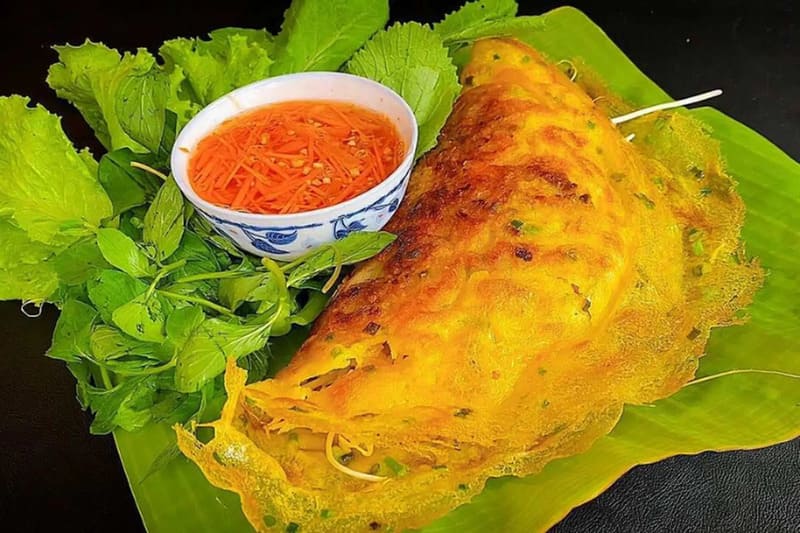
7. Hủ tiếu – Traditional Southern Noodle Soup
Lighter and slightly sweeter than phở, hủ tiếu is a southern favorite with pork, seafood, and fresh vegetables. Commonly found at night markets and roadside stalls, it’s an affordable, filling meal that students often enjoy as a late-night bite.
8. Ốc & Hải sản đường phố – Street Snails & Seafood
In the evenings, bustling snail and seafood stalls fill the streets with delicious aromas. Students flock here for affordable dishes like steamed clams with lemongrass, stir-fried snails in tamarind sauce, or simple boiled shells. It’s not just about the food — sharing plates around a plastic table with friends is one of the most authentic and fun experiences of student life in Ho Chi Minh City.
9. Bánh tráng trộn – Mixed Rice Paper
A true student favorite, this snack mixes shredded rice paper with green mango, dried beef, quail eggs, herbs, and a tangy chili sauce. At just 10,000–20,000 VND, it’s affordable, flavorful, and surprisingly filling — a must-try street food for students on the go.
10. Chè – Sweet Dessert Soup
From coconut milk to beans, jelly, and seasonal fruits, chè offers endless variations that make it the perfect way to end your street food journey. Served cold or warm, depending on the type, it’s both refreshing and comforting. Best of all, prices start as low as 10,000 VND, making it one of the most budget-friendly treats for students.
11. Other Must-Try Street Eats for Students
Beyond the classics above, Ho Chi Minh City’s food scene offers plenty more to explore. Don’t miss these affordable and tasty favorites:
- Bắp nướng (Grilled Corn): Brushed with scallion oil and chili salt, smoky and flavorful.
- Trà đá (Iced Tea): Vietnam’s cheapest refreshment, often free with street meals.
- Bột chiên (Fried Rice Flour Cakes): Crispy cubes fried with egg, topped with pickled papaya.
- Xôi (Sticky Rice): A hearty, budget-friendly breakfast or snack with toppings like pork floss, sausage, or peanuts.
- Bánh cuốn (Steamed Rice Rolls): Thin rice sheets rolled with minced pork and mushrooms, served with fish sauce.
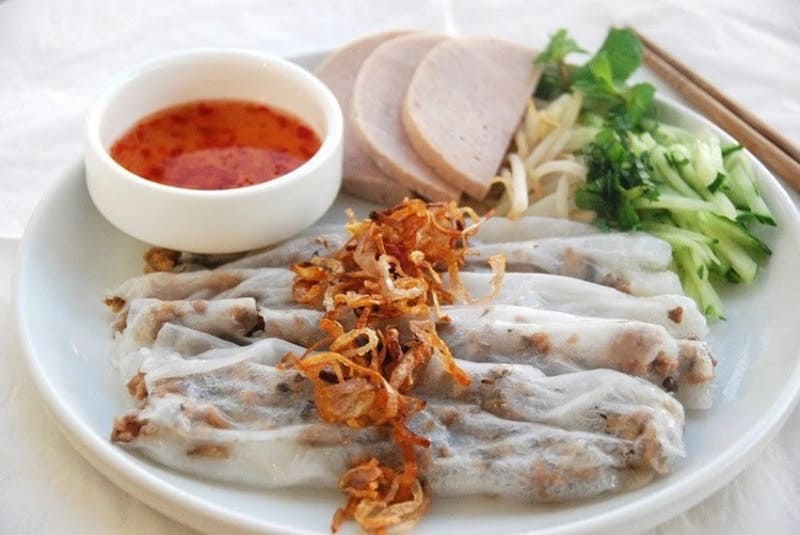
- Bánh bao: A filling steamed bun stuffed with pork, quail egg, or BBQ pork.
- Chuối nướng (Grilled Banana with Sticky Rice): Banana wrapped in sticky rice, grilled over charcoal, topped with coconut sauce.
- Súp cua (Crab Soup): A comforting, savory soup with crab meat, quail egg, and mushrooms.
- Sữa đậu nành (Soy Milk – hot or iced): A light, nutritious drink, perfect for mornings or late nights.
In addition, there are plenty of other delicious dishes. With so many options, street food in Vietnam isn’t just about eating — it’s about experiencing student life, culture, and community in every bite, with endless delicious dishes still waiting to be discovered in Vietnam’s incredibly diverse cuisine.
Where to Find the Best Street Food in HCMC
If you’re a student in Ho Chi Minh City, great street food is never far away. Some of the best spots to explore include:
- Ben Thanh Market (District 1): Central hub with bánh xèo, bún thịt nướng, and fresh spring rolls — perfect for a quick food tour.
- Binh Thanh District: A student-friendly area with affordable eats from cơm tấm to late-night noodles, close to student housing.
- Pham Ngu Lao & Bui Vien (District 1): Backpacker streets alive at night, ideal for snacks, grilled skewers, and group hangouts.
- District 3: Authentic food streets like Nguyen Thuong Hien (snacks, pha lau) and Nguyen Dinh Chieu (sweet soups).
- District 10: Ho Thi Ky Market for cheap night snacks, Nguyen Tri Phuong for hotpot/noodles, and trendy cafés around Su Van Hanh.
Whether you want a quick snack between classes or a full night out with friends, these neighborhoods are where student life and street food culture meet.
Explore more: Best Districts in HCMC for International Students
How Much Does Street Food Cost for International Students?
If you rely on street food daily, expect to spend around 2–3 million VND per month — a budget-friendly option for most students. Here’s a quick breakdown of average prices:
- Bánh mì or light snacks: 15,000–25,000 VND
- Phở or noodle dishes: 35,000–60,000 VND
- Rice meals (like cơm tấm): 30,000–50,000 VND
- Desserts (chè, smoothies): 10,000–25,000 VND
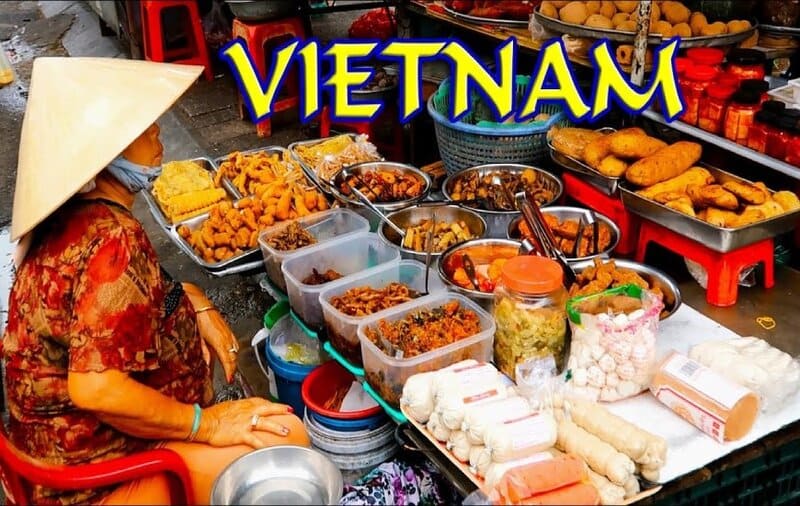
For international students, street food isn’t just affordable — it saves time, offers variety, and keeps you connected with local culture. In many cases, it’s even more cost-effective than cooking at home once you factor in groceries, utilities, and the effort.
Staying Safe While Enjoying Street Food
Street food in Vietnam is delicious and budget-friendly, but if you’re new, a few smart habits will keep you safe and comfortable:
- Pick busy stalls – high turnover usually means fresher food.
- Follow the locals – if Vietnamese students are lining up, it’s a good sign.
- Start with cooked dishes until your stomach adjusts.
- Bring tissues or sanitizer since many stalls don’t provide napkins.
- Stick to bottled water at first, as street drinks can be hit-or-miss.
With these simple precautions, you can enjoy Vietnam’s street food scene with confidence, tasting freely without worrying too much.
Explore more: Safety Tips for International Students Renting Apartments in HCMC
Budget Tips for International Students Exploring Street Food
Exploring street food doesn’t have to drain your wallet — here are some smart budget tips every student should know:
- Eat like locals: Avoid touristy spots and head to student-friendly alleys for authentic flavors at better prices.
- Look for set meals: Many vendors offer rice, protein, and veggies together — often cheaper than ordering separately.
- Try “cơm bình dân”: Local rice eateries where you choose from a buffet-style spread, usually under 30,000 VND per plate.
- Share to save: Splitting dishes with friends means you can sample more food varieties without stretching your budget.
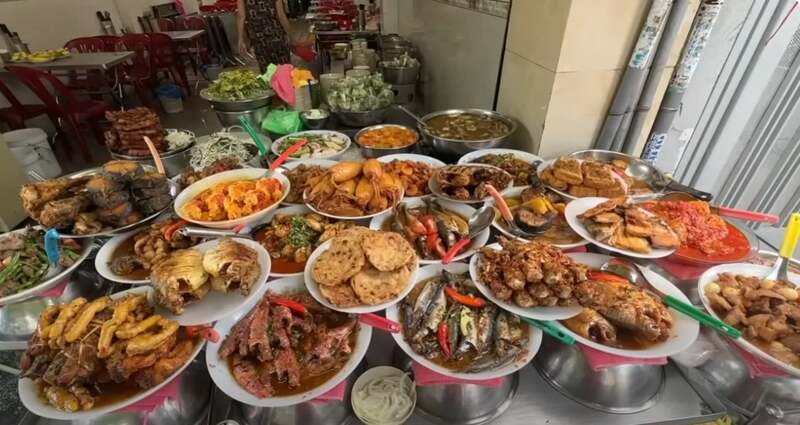
With these tips, you can enjoy HCMC’s street food scene fully — delicious, affordable, and student-friendly.
Explore more: Money-Saving Tips for International Students Renting in HCMC
Final Thoughts: Make Street Food Your Gateway to Vietnam
For international students, street food in Ho Chi Minh City is more than just affordable meals — it’s a cultural bridge, a way to save money, and an invitation to feel part of the local community.
By choosing safe and popular stalls, you can explore authentic flavors, share laughter with friends, and turn every bite into a memorable experience. From bánh mì to chè, each dish tells a story of Vietnam’s vibrant culinary scene.
Ready to dive in? Start your student journey with confidence — and let JHouse help you find the perfect home base to explore HCMC’s street food scene fully.
JHouse Content Team
The in-depth content development team on housing services for foreigners & Vietnamese in Vietnam. The content is simple, easy to understand, and logically arranged to bring readers useful topics and information from real experiences.
Weekend Activities and Must-Visit Places for Students in HCMC
Weekend Activities & Things to Do in HCMC for Students
Weekend activities in Ho Chi Minh City aren’t just about passing time—they’re opportunities to explore vibrant culture, recharge after classes, and meet new people. For international students, balancing study with fun, affordable, and student-friendly experiences is key to thriving in a new city.
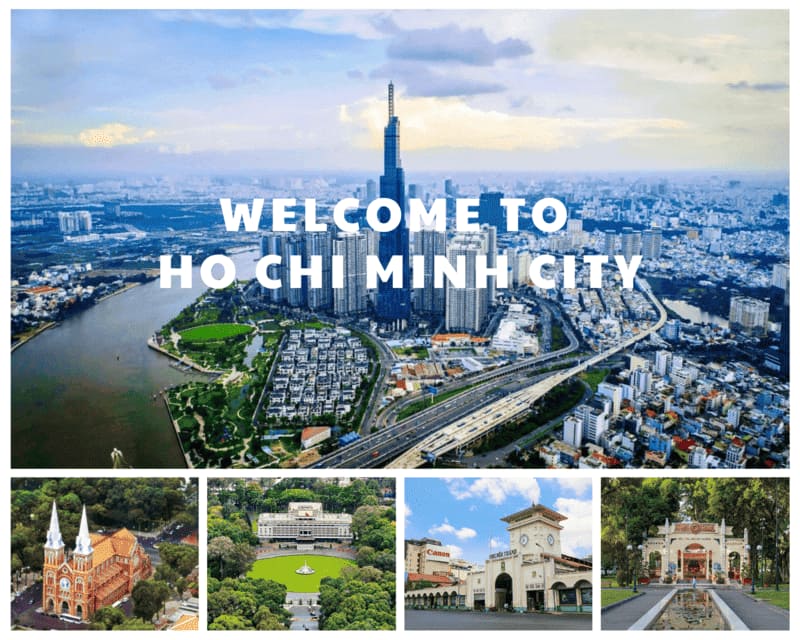
Luckily, HCMC is packed with exciting weekend activities and must-visit places, from street food adventures and local markets to peaceful parks and cultural hotspots. These experiences not only help you relax but also deepen your connection with the city and other students while creating lasting memories. Whether you’re looking for hidden gems or popular attractions, there’s always something new to try.
Ready to turn your weekends into memorable adventures? Let’s explore the top things to do and discover where to go in Ho Chi Minh City as a student.
The Role of Weekend Activities in Student Life in HCMC
Living as a student in Ho Chi Minh City means navigating one of Asia’s most dynamic and colorful cities. While weekdays are filled with lectures, projects, and sometimes part-time jobs, weekends open the door to new experiences. Weekend activities in HCMC aren’t just about entertainment—they help international students enjoy student life more fully by:
- Exploring Vietnam’s culture, food, and local traditions in a fun, hands-on way.
- Finding affordable weekend plans that fit a student budget while still feeling rewarding.
- Meeting both local and international friends, expanding your community beyond campus.
- Discovering must-visit places and hidden gems that go beyond tourist hotspots, making HCMC feel like home.
With the right mix of weekend activities, students can balance study and leisure, creating a more meaningful, budget-friendly, and memorable stay in Vietnam.
Read more: International Student Life in HCMC: Culture, Safety & Daily Life
Top Things to Do in Ho Chi Minh City on Weekends
1. Explore Historical & Cultural Sites
Spending your weekend exploring Ho Chi Minh City’s historical and cultural landmarks is both inspiring and worth exploring. For students, these sites offer more than photo opportunities— they provide a deeper understanding of Vietnam’s history and culture. You can explore:
- War Remnants Museum – powerful exhibitions that tell Vietnam’s past.
- Independence Palace (Reunification Palace) – where modern history was shaped.
- Notre Dame Cathedral – iconic French colonial architecture.
- Central Post Office – a living landmark still buzzing with locals and travelers.
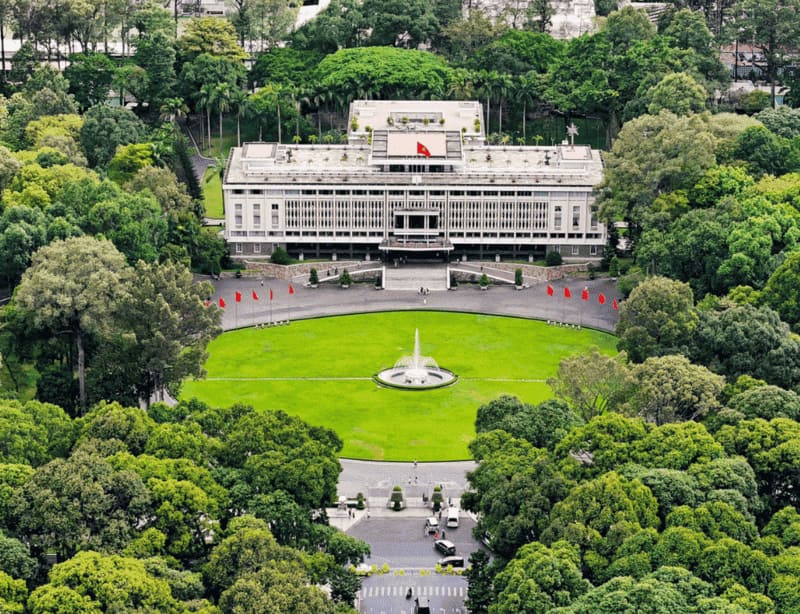
Visiting these cultural gems is one of the most rewarding weekend activities in HCMC: you’ll learn, reflect, and connect with the city in a meaningful way, all while keeping your budget intact.
2. Relax in Parks and Outdoor Spaces
Life in Ho Chi Minh City can sometimes feel overwhelming with its constant buzz of traffic and activity. For students, weekends are the perfect chance to slow down, and the city’s green spaces offer just that. Popular spots include:
- Tao Dan Park – a peaceful oasis right in downtown.
- Le Van Tam Park – a convenient green space for nearby residents.
- Suoi Tien Theme Park – a day-trip destination blending cultural displays and fun rides.
Whether you choose a quiet jog, a picnic with friends, or a bit of sightseeing, spending time outdoors is a refreshing and budget-friendly way to recharge.
3. Food Adventures for Students
No weekend in Ho Chi Minh City is complete without diving into its food scene. For students, it’s one of the most affordable and exciting ways to explore local life. Street food stalls and night markets buzz with energy, offering everything from quick snacks to full meals. Top places to experience are:
- Ben Thanh Market – shop for souvenirs while enjoying Vietnamese classics.
- Bui Vien Street – the nightlife hub where students from around the world gather.
- Nguyen Thuong Hien Street – famous for bánh tráng trộn and sweet soups.
- Ho Thi Ky Market (District 10) – a lively mix of flower stalls and wallet-friendly street food popular with students.
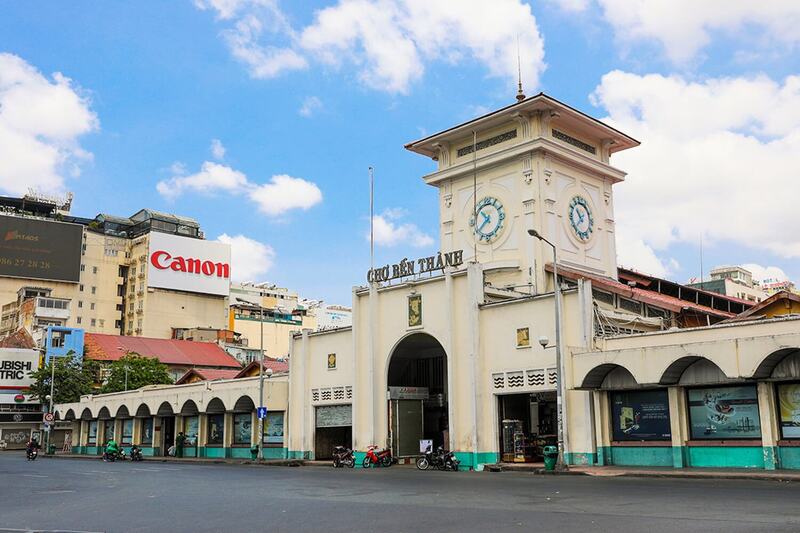
Beyond satisfying your taste buds, these food adventures give you a real sense of everyday living costs for international students in HCMC. And more than that, they offer a true taste of local life—so grab some friends, head out after class, and let the city’s food scene surprise you.
Read more: Street Food Guide for International Students in Ho Chi Minh City4. Must-Visit Places for Art & Creativity Lovers
For students who love art, creativity, or simply want to try something new, Ho Chi Minh City has plenty of inspiring options. These spots are not only affordable but also help you connect with local culture and like-minded friends:
- Factory Contemporary Arts Centre – a hub for modern Vietnamese art where exhibitions often feature young, emerging artists.
- Café hopping in Thao Dien or District 3 – themed cafés perfect for study sessions, casual meet-ups, or snapping Instagram-worthy photos.
- Local workshops – try pottery, painting, or even cooking classes; they’re fun, hands-on experiences that make weekends memorable.
Exploring these creative spaces is a refreshing break from routine and a chance to see another side of student life in HCMC.
5. Shopping and Weekend Markets
For many students, shopping isn’t just about buying things – it’s also a way to explore local culture, socialize, and unwind on weekends. From budget-friendly finds to modern malls, Ho Chi Minh City has something for every style and wallet:
- Saigon Square – a go-to spot for affordable clothes, accessories, and souvenirs, popular among both locals and students.
- Weekend flea markets – lively spaces where young people showcase handmade crafts, vintage items, and unique designs you won’t find in regular stores.
- Vincom, Emart, or Aeon Mall – modern shopping malls offering international brands, food courts, and the comfort of air-conditioning on hot days.

These places aren’t just about shopping—they’re also where many international students pick up bargaining skills, learn to budget smarter, and enjoy a taste of city life.
6. Weekend Nightlife for Students
When the sun sets, Ho Chi Minh City transforms into a vibrant hub of music, lights, and laughter. For students, nightlife doesn’t have to be expensive—there are plenty of fun and budget-friendly options to try:
- Acoustic cafés – intimate spots featuring live Vietnamese music, perfect for a relaxed evening with friends.
- Student bars in District 1 and Bình Thạnh – casual places where you can meet fellow students, enjoy affordable drinks, and soak up the city’s youthful energy.
- Karaoke nights – a favorite group activity that’s both fun and budget-friendly, ideal for bonding with classmates or roommates.
Exploring the nightlife scene is not just about entertainment—it’s also a chance to experience local culture, make new friends, and build lasting memories in HCMC.
Weekend Trips Around Ho Chi Minh City
When you’ve had enough of the city buzz, weekend getaways are the perfect way to recharge and explore more of Vietnam. Just a short ride from HCMC, students can enjoy:
- Củ Chi Tunnels – a fascinating glimpse into Vietnam’s war history, offering guided tours through underground passages.
- Mekong Delta day trips – peaceful boat rides, floating markets, and lush greenery, ideal for nature lovers.
- Vũng Tàu beach – sandy shores and fresh seafood, only 2–3 hours away by bus or ferry.

These trips are affordable, easy to organize with friends, and give you a refreshing break from student life in the city.
Student Budget Tips for Weekend Activities
Worried about spending too much? The good news is that enjoying weekends in HCMC doesn’t have to be expensive. With a few smart choices, you can stretch your budget and still have fun:
- Show your student ID – many museums and attractions offer discounts for students.
- Join group trips – traveling with friends lowers transport and tour costs.
- Eat like a local – street food stalls are not only cheap but also authentic.
- Look for free events – universities and cultural centers often host concerts, film screenings, or festivals.
These small savings add up, leaving you more room to explore and enjoy your weekends without financial stress.
Read more: Money-Saving Tips for International Students Renting in HCMCBest Districts for Students to Enjoy Weekend Activities
Choosing the right neighborhood in HCMC doesn’t just affect your housing—it also shapes how you spend your weekends. Here are some student-friendly districts worth considering:
- District 1 – the heart of nightlife, museums, and must-see attractions.
- Binh Thanh – affordable rent with vibrant street food and local markets.
- District 7 (Phu My Hung) – a modern area with green parks, cafés, and shopping.
- Thu Duc & Thao Dien (District 2) – home to international student communities, creative hubs, and riverside hangouts.

These districts strike the right balance between affordable student housing in HCMC and easy access to fun weekend activities.
Read more: Best Districts in HCMC for International Students
Final Thoughts: Make Your Weekends Count in HCMC
Weekend activities in Ho Chi Minh City aren’t just about fun—they’re essential to creating a balanced and memorable student life. From must-visit places like historical landmarks, night markets, and riverside cafés to budget-friendly options such as local food stalls or free cultural festivals, HCMC is full of experiences that fit a student’s wallet.
International students can unwind after a busy week, meet new friends, and immerse themselves in Vietnamese culture while staying on budget. Instead of spending the whole weekend in your apartment, take advantage of the city’s energy: join a workshop, explore a new neighborhood, or hop on a short trip nearby.
With so many options, every weekend is a chance to recharge, discover, and make Ho Chi Minh City feel like your second home. For a cozy student apartment that keeps you close to the action, JHouse is here to help.
JHouse Content Team
The in-depth content development team on housing services for foreigners & Vietnamese in Vietnam. The content is simple, easy to understand, and logically arranged to bring readers useful topics and information from real experiences.
International Student Guide: Friends & Community in HCMC
International Student Life in HCMC: Friends & Community Guide
Studying abroad is thrilling, but for many international students in Ho Chi Minh City, the first weeks can feel isolating. Without friends or familiar faces, even simple things like finding dinner or exploring the city may seem daunting.
That’s why building friends & community is not just helpful—it’s essential. The connections you create will bring comfort, guidance, and joy, making daily life smoother and far less overwhelming.

This guide highlights where to find supportive networks, how to connect with other students and locals, and the best ways to overcome those first hurdles. With the right friendships and communities, HCMC won’t just be a study destination—it will quickly become a place where you feel safe, supported, and truly at home.
Making Connections: Why Community Matters for Students Abroad
Arriving in HCMC is exciting, but international students quickly realize that thriving here goes beyond classes. Building Friends & Community transforms daily life and enriches your student journey:
- Emotional support to navigate homesickness, culture shock, and the challenges of living abroad
- Practical guidance for finding housing, understanding transportation, and managing everyday student life
- Cultural immersion through shared experiences, local festivals, and learning traditions firsthand
- A sense of belonging that turns acquaintances into friends and makes HCMC feel like a home away from home
Strong friendships and active community connections don’t just make life easier—they make your time in HCMC vibrant, rewarding, and truly memorable.
Read more: International Student Life in HCMC: Culture, Safety & Daily Life
Where to Find Friends & Community in HCMC for International Students
Making friends in a new city can feel overwhelming, but Ho Chi Minh City is full of opportunities for international students to connect. Building your friends and community here doesn’t have to be intimidating—whether through campus activities, social networks, or shared interests, there are plenty of ways to meet people. Here are some trusted pathways:
1. University Clubs and Societies
Most universities in Ho Chi Minh City offer student clubs that warmly welcome international students. From debate teams to music, art, or sports groups, joining a club is a great way to make friends, practice language skills, and immerse yourself in campus life. Clubs not only connect you with other international students but also open doors to local friendships, creating your first meaningful friends & community in HCMC.

2. Facebook & Online Groups
Online communities are a powerful way for international students to build a support network in HCMC. Popular groups like Expat Saigon - Expats Ho Chi Minh City or Foreigners in Saigon (HCM City) let you ask questions, discover events, and meet people nearby. Many meaningful friendships start online before turning into real-life connections, helping you feel more confident and supported in your new city.
3. Co-working Spaces & Cafés
Co-working spaces and cafés like The Hive, Toong, and CirCO aren’t just for professionals—they also welcome international students and young creatives. These spots host workshops, networking nights, and social meetups, making them ideal for forming connections, meeting like-minded peers, and experiencing HCMC’s vibrant social scene firsthand.
4. Hobby and Volunteer Groups
Shared passions are a natural way to form lasting friendships in HCMC. Whether it’s yoga, hiking, football, or volunteering, the city is full of clubs and charity networks where international students can join in. Participating not only lets you contribute to the community but also helps you build an authentic social circle and meaningful connections that make life abroad more fulfilling.
5. Student Housing and Shared Apartments
For many international students, community begins at home. Choosing shared apartments or student residences lets you meet peers from diverse backgrounds, share daily experiences, and support each other. Living with others is a great way to form a close-knit social circle, exchange cultures, and turn your student housing into a lively hub of friendships and shared memories.
Read more: How to Find Affordable Student Apartments in Ho Chi Minh City
How to Make Friends as an International Student in HCMC
Life as an international student in HCMC is filled with new faces, cultures, and experiences waiting to be discovered. Every café visit, campus activity, or weekend outing offers a chance to meet locals and fellow expats. Approaching these opportunities with curiosity and openness allows you to gradually form a vibrant support network and meaningful friendships, turning the city into more than just a study destination. Try these practical tips:
- Be proactive: Attend campus orientations, welcome events, or student mixers and introduce yourself confidently.
- Stay curious: Ask about Vietnamese culture, food, and traditions—it sparks genuine conversations.
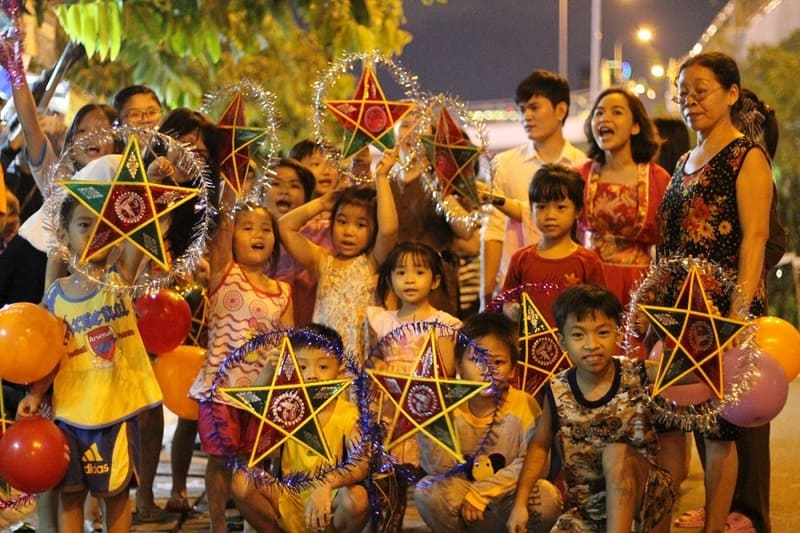
- Balance friendships: Spend time with both local students and fellow expats for a richer experience.
- Leverage apps: Use InterNations, Meetup, or Bumble BFF to meet like-minded people.
- Show up consistently: Attend recurring events, weekly clubs, or regular meetups—friendships grow with time and presence.
Read more: Essential Apps & Resources for International Students in Vietnam
Student Hangout Places in Ho Chi Minh City
HCMC offers plenty of student-friendly spots that also serve as cultural gateways. Popular choices include:
- Book cafés in District 3 and Phu Nhuan for study sessions, casual meetups, and coffee chats.
- Nguyen Hue Walking Street for weekend strolls, street performances, and public events.
- Thao Dien in District 2, where expats gather in restaurants, art spaces, and community markets.
- Youth Cultural House (Nha Van Hoa Thanh Nien) hosts concerts, exhibitions, and interactive events.
- Sports clubs and gyms offering group classes, from dance to martial arts.
These spots are more than just places to hang out—they provide ideal settings to expand your social circle, forge meaningful connections, and grow your friends & community while experiencing HCMC’s vibrant culture.
Read more: Weekend Activities and Must-Visit Places for Students in HCMCOvercoming Common Pain Points
Life as an international student in HCMC is colorful, but challenges are part of the experience. Here’s how to navigate common obstacles:
- Loneliness: Participate in at least one community activity per week to stay engaged and meet new people.
- Language barrier: Use even basic Vietnamese phrases—they help you connect and show respect.
- Cultural differences: Misunderstandings are natural; approach them with curiosity and an open mind.
- Budget limits: Public parks, free cultural events, and affordable cafés make socializing easy and fun.
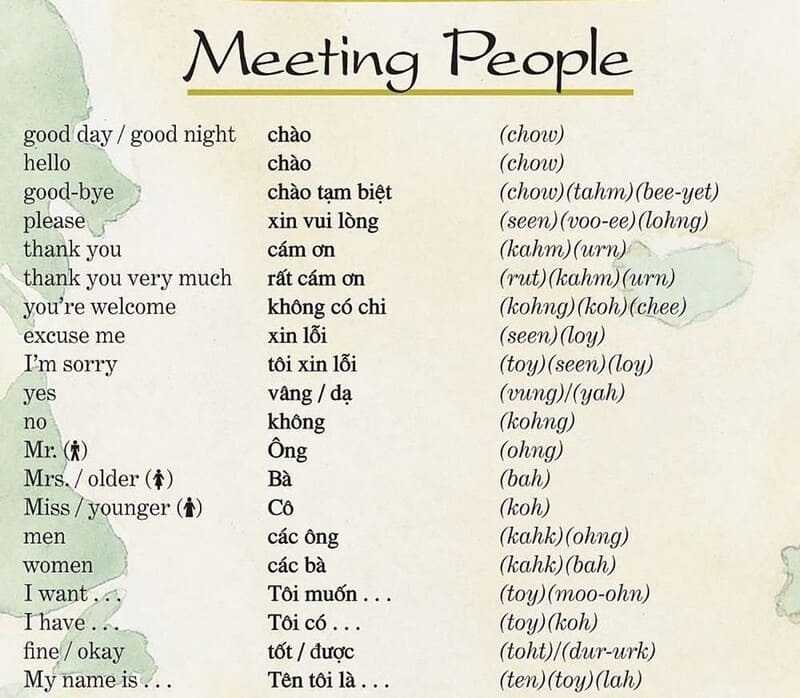
Facing these challenges with the support of your social circle & network turns potential frustrations into opportunities for personal growth, lasting connections, and a richer student experience in HCMC.
Tips for Building Lasting Connections
Building lasting connections as an international student in HCMC starts with giving as much as you receive—offering support when friends face challenges creates trust and mutual respect.
Celebrate together by joining local holidays like Tet or the Mid-Autumn Festival, sharing experiences that deepen understanding and enjoyment of Vietnamese culture. Create small traditions such as weekly dinners, study groups, or weekend outings to strengthen bonds over time. Always stay inclusive by reaching out to newcomers, remembering how it felt when you first arrived.
Lasting friends & community are built through these consistent acts of kindness, presence, and shared experiences, turning casual acquaintances into meaningful relationships that make life abroad richer and more fulfilling.
Conclusion: Thriving with Friends & Community in HCMC
Your international student journey in HCMC isn’t just about academics—it’s about cultivating meaningful friends & community that support, inspire, and help you thrive. Opportunities to connect are everywhere: through university clubs, cafés, hobby groups, and even shared housing.
By stepping out of your comfort zone, embracing new cultures, and nurturing real relationships, you transform the city from a place you study into a place you truly belong. Start today: explore new spaces, join activities, attend local gatherings, and build friendships that make HCMC your second home
For safe, student-friendly housing that helps you connect, socialize, and grow your community, JHouse is here to support your journey.
JHouse Content Team
The in-depth content development team on housing services for foreigners & Vietnamese in Vietnam. The content is simple, easy to understand, and logically arranged to bring readers useful topics and information from real experiences.
Essential Apps & Resources for International Students in Vietnam
Best Apps & Online Resources for International Students in Vietnam
Moving to Vietnam as an international student is both exciting and challenging. Beyond the thrill of discovering a new culture, you’ll also face practical tasks like navigating transport, managing finances, ordering food, and staying connected with family abroad. That’s where technology becomes your best support.

Having the right essential apps & resources for international students in Vietnam can save you money, simplify daily routines, and help you adapt more quickly. From ride-hailing and payment apps to study platforms and expat communities, digital tools make life smoother and more rewarding.
This article highlights the must-have apps and trusted online resources every student should know— so you can settle in faster, live more comfortably, and fully experience your student journey in Vietnam.
Why Apps & Resources Matter for International Student Life in Vietnam
Being an international student in Vietnam is more than studying—it’s about building a smooth, connected, and independent lifestyle. The right essential apps & resources for international students in Vietnam help you navigate daily life efficiently.
Mobile apps support transportation, finances, food delivery, and communication, while online resources—including trusted websites, student forums, and Facebook groups—provide vital information, cultural insights, and peer support
Together, these tools help you manage your budget, find reliable housing, stay updated on academic and visa requirements, and connect with local and international peers. Think of them as your digital toolkit for a confident, organized, and enjoyable student experience in Vietnam.
Read more: Student Apartments in HCMC: The Ultimate Guide for StudentsMust-Have Apps for Students in Vietnam
Managing daily life as an international student in Vietnam isn’t always easy—but the right apps make everything smoother. Explore these must-have apps for international students that help you save time, stay organized, and enjoy a more comfortable student experience
1. Transportation
Getting around Vietnam as an international student is easier with the right apps. These tools are essential for safe, efficient, and stress-free commuting:
- Grab/ Be/ Xanh SM: Motorbike and car rides at transparent, affordable prices. Cashless, reliable, and safer than negotiating random taxis. Also useful for food delivery.
- BusMap: Real-time bus schedules and route planning across major cities. Ideal for students relying on public transport, helping save time and reduce commuting stress.
- Google Maps: Guides walking or biking routes, helping avoid traffic-heavy streets and discover new areas safely.

Tip: For affordable student housing in HCMC, consider locations near universities or main bus lines to reduce transportation costs and simplify daily commuting.
2. Finance & Payments
Managing money safely and efficiently is essential for student life in Vietnam. Cashless apps and digital banking tools make daily transactions quick, secure, and convenient:
- MoMo / ZaloPay / ViettelPay: Widely accepted e-wallets for bills, utilities, top-ups, and even small purchases like coffee or snacks. Instant transfers make splitting costs with roommates easy.
- Banking Apps (Techcombank, VPBank, Vietcombank, ACB): Track expenses, pay rent, and manage utilities securely through online banking services.
- Money Lover: A Budgeting app developed in Vietnam, perfect for keeping track of rent, food, and daily spending.
Budget Tip: Factor in rent and utilities when planning monthly expenses for international students in HCMC. Using these apps helps you manage finances efficiently, avoid carrying cash, and focus on studies and student life.
Read more: Money-Saving Tips for International Students Renting in HCMC3. Food & Delivery
Affordable and convenient meals are a daily priority for international students in Vietnam. These apps make it easy to eat well, save time, and explore local cuisine safely:
- GrabFood / ShopeeFood / BeFood: Quick delivery from a wide range of local restaurants, from budget-friendly street food to healthier options. Many offer student promotions.
- Chopp / Bach Hoa Xanh Online: Grocery delivery apps, perfect for shared apartments or cooking at home.
Saving Hack: Cooking at home can reduce the cost of living for international students in HCMC by 20–30%.
Read more: Street Food Guide for International Students in Ho Chi Minh City4. Learning & Connection
Navigating a new language and staying connected are crucial for international students in Vietnam. These apps and platforms help you communicate, learn, and manage academics effectively:
- Google Translate: Communicate with landlords, shopkeepers, classmates, and locals without language barriers.
- Duolingo: Learn Vietnamese in a fun, interactive way and build daily language practice habits.

- Zoom/ Google Meet: Attend online classes, study sessions, and group meetings seamlessly.
- Messenger/ Zalo/ WhatsApp: Stay connected with peers, friends, and family abroad.
- Google Workspace (Docs, Drive): Collaborate on assignments, presentations, and projects.
- Notion/ Evernote: Organize notes, deadlines, and academic tasks efficiently.
- Coursera/ Udemy: Online learning platforms to complement coursework in Vietnam.
Student Lifestyle Tip: Many international students in HCMC form study groups via Zalo or Facebook to stay motivated, share resources, and thrive academically.
Read more: International Student Life in HCMC: Culture, Safety & Daily Life5. Health & Safety Apps
Staying healthy and safe is essential for international students living in Vietnam. The right apps and resources help you access medical care quickly and confidently:
- Doctor Anywhere / Jio Health: Book appointments with English-speaking doctors online for convenience and peace of mind.
- Pharmacity App: Order medicine or locate the nearest pharmacy chain effortlessly.
- Bluezone / 115 Emergency Hotline: Access local emergency health services quickly during urgent situations.
Tip: Include healthcare and insurance costs in your monthly budget for HCMC student accommodation. These health and safety apps help you stay prepared, protected, and focused on studies and student life.
Read more: Safety Tips for International Students Renting Apartments in HCMC
6. News & Cultural Insights
Keeping up with local news and cultural trends helps international students feel more connected and navigate life in Vietnam confidently:
- VNExpress International → Read English-language news for accurate updates on Vietnam’s culture, economy, and society.
- Zing News (use with Google Translate) → Access local Vietnamese news for deeper insight into daily life and trends.
- TikTok Vietnam → Discover fun trends, local cuisine, and student life tips in an engaging format.
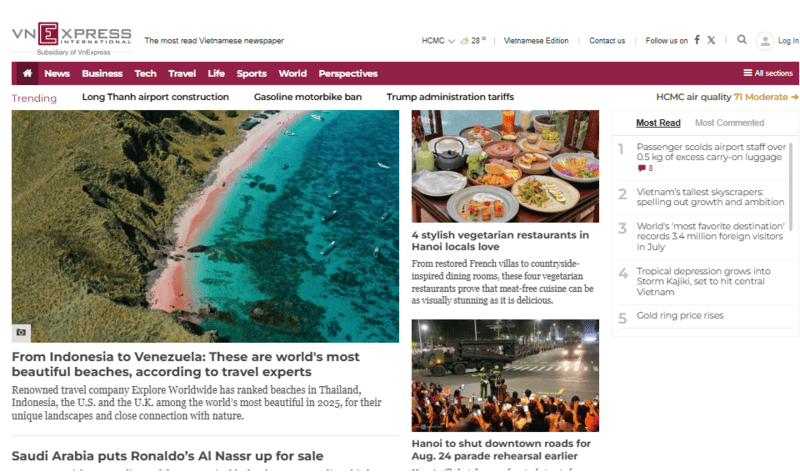
Cultural Tip: Following news and cultural content helps international students understand laws, housing costs, lifestyle changes, and social norms in HCMC. These apps and resources are essential tools in your digital toolkit, supporting a smoother, safer, and more enjoyable student experience in Vietnam.
Read more: International Student Life in HCMC: Culture, Safety & Daily LifeOnline Resources & Communities
Navigating life as an international student in Vietnam goes beyond apps—knowing where to find accurate information and connect with others is equally crucial. Below, we highlight key official sources, active Facebook groups, and useful websites that form an essential part of the digital toolkit and resources for international students in Vietnam, helping you manage visas, academics, housing, and social life with confidence.
1. Official Sources from Universities, Embassies, and Government Agencies
Always rely on official websites for visa requirements, student regulations, or academic updates. University portals, embassy announcements, and government sites provide accurate, up-to-date information, helping you avoid common pitfalls that often arise from following random advice online.
Here are some key official websites that international students in Vietnam can consult:
- Ministry of Education and Training (MOET): https://en.moet.gov.vn – for academic policies, regulations, and updates.
- Immigration Department of Vietnam: https://immigration.gov.vn – for visa, residence permits, and travel regulations.
- Ministry of Foreign Affairs (MOFA): https://mofa.gov.vn – for diplomatic guidance and consular services.
- Vietnam Government Portal: https://vietnam.gov.vn – for official announcements and government information.
- Vietnamese Embassy in your home country: Check the embassy website for visa procedures, citizen support, and consular services.
Referring to these sources helps international students stay informed, manage official requirements efficiently, and avoid mistakes from unreliable advice online.
2. Facebook Communities for Expats and International Students
Beyond official websites, online communities offer practical support and social connections. Facebook groups such as “Expats in Vietnam”, “Expats living & working in Vietnam” or “International students in VietNam” are valuable for asking questions, finding events, discovering student-friendly housing tips, and connecting with peers who understand life abroad.

While these communities provide quick advice and cultural insights, it’s important to double-check information since not all posts are verified. These Facebook groups help you stay informed, social, and supported.
3. Helpful Websites
Alongside apps and communities, certain websites are essential resources for international students in Vietnam:
- Vietnam-Visa: https://evisa.gov.vn – simplifies visa applications and extensions, helping students navigate legal requirements with confidence. You can also check the Immigration Department for updates on visas and residence permits.
- Vietnam Insider: https://vietnaminsiders.com – offers practical tips on local life, culture, and student-friendly events. Stay updated on news and insights beyond the classroom. Facebook page: https://www.facebook.com/vietnaminsider.vn.
- JHouse: https://jhouse.vn – A trusted platform for international students to find safe, affordable apartments with transparent contracts, and you can also explore the JHouse Blog for guides on student housing, budgeting, and living in Vietnam.
Together, these websites make student life abroad smoother, safer, and more enjoyable.
Why Choose JHouse
Finding a reliable home is one of the biggest challenges in student life abroad. Many international students in Vietnam risk renting through Facebook groups or informal listings, leading to unclear contracts, safety concerns, or hidden costs.
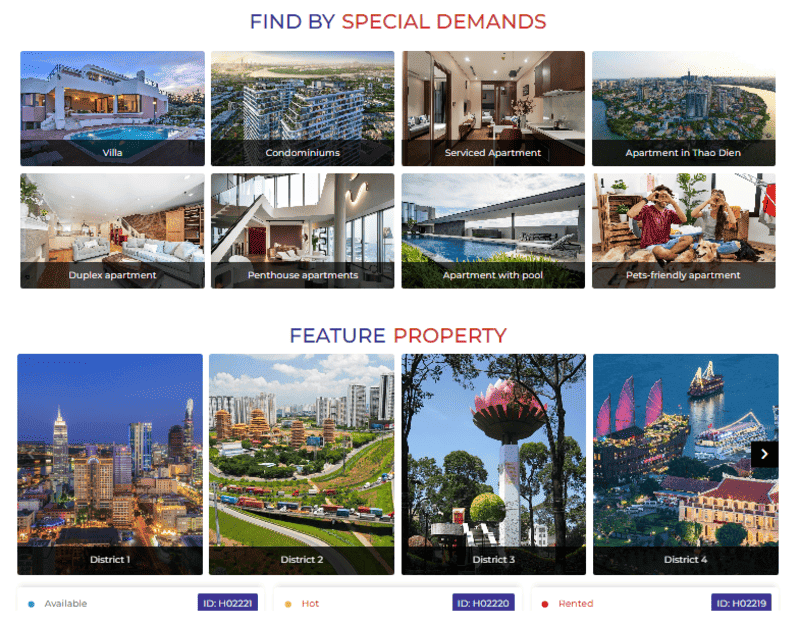
JHouse solves these pain points by offering verified apartments tailored for international students: secure, budget-friendly, and fully supported in English. Alongside essential apps & resources for international students in Vietnam, JHouse helps you save time, avoid stress, and enjoy peace of mind—so you can focus on studying, building friendships, and experiencing life fully in your new home.
Read more: JHouse – Where Great Homes Meet Great People
Final Thoughts: Thriving in Vietnam as an International Student
Success as an international student in Vietnam goes beyond the classroom — it’s about living confidently, safely, and connected. The essential apps & resources for international students in Vietnam help you navigate daily life with ease, from managing transport, food, and finances to staying in touch with peers and exploring new communities.
Your apartment plays a key role too: a safe, affordable, and reliable home lays the foundation for a smooth, enjoyable student experience — let JHouse help you find a home that supports your journey.
Start with the right digital tools and trusted online platforms to make your transition seamless, focus on studying, and fully embrace life in Vietnam, so that your student journey can be smarter, simpler, and more rewarding.
JHouse Content Team
The in-depth content development team on housing services for foreigners & Vietnamese in Vietnam. The content is simple, easy to understand, and logically arranged to bring readers useful topics and information from real experiences.
Money-Saving Tips for International Students Renting in HCMC
Affordable Student Housing in HCMC: Smart Money-Saving Tips
Studying abroad in Ho Chi Minh City is an exciting adventure, but for international students, managing expenses can be a real challenge. Rent, utilities, food, and hidden costs can add up quickly, making it easy to overspend without careful planning or guidance.

That’s why having smart money-saving tips for international students renting in HCMC is essential to enjoy city life without breaking your budget or sacrificing comfort. From choosing affordable student housing and sharing apartments to cutting utility bills, finding budget-friendly meals, and adopting local lifestyle hacks, this guide offers practical strategies to stretch your money further.
With the right approach and mindset, you can balance affordable rent, daily expenses, and vibrant student experiences — ensuring that your time in Vietnam is not only memorable but also financially sustainable and stress-free.
How Smart Budgeting Supports International Student Life in HCMC
Studying abroad is about more than paying tuition — it’s learning how to manage daily living costs in a new city. In Ho Chi Minh City, you’ll juggle student rent, utility bills, food, transportation, and those little extras that quickly drain a budget.
Without planning, even small daily expenses can pile up and limit your freedom to fully enjoy student life. Since housing usually takes the biggest share of monthly spending, finding affordable student housing in HCMC becomes the foundation for financial balance.
With smart strategies, you don’t have to sacrifice comfort or safety to save money. Instead, you can create room in your budget for what matters most — from cultural experiences to exploring Vietnam’s vibrant lifestyle. Let’s dive into practical tips that help you spend wisely while living your best student life.
Essential Money-Saving Tips for Student Housing in HCMC
When searching for accommodation, every decision impacts your budget. Here are smart ways to cut down on rental costs and avoid overspending:
1. Choose the Right District
Rental prices in Ho Chi Minh City vary greatly depending on location. Rent in District 1 or Thao Dien is higher; Binh Thanh, Phu Nhuan, and District 3 offer more affordable student housing in HCMC, which strikes a good balance between cost, proximity to universities, and transport links. Thu Duc City is another budget-friendly option, especially if your campus is nearby. Choosing the right district can reduce your housing expenses by 20–40% while still keeping comfort and accessibility.
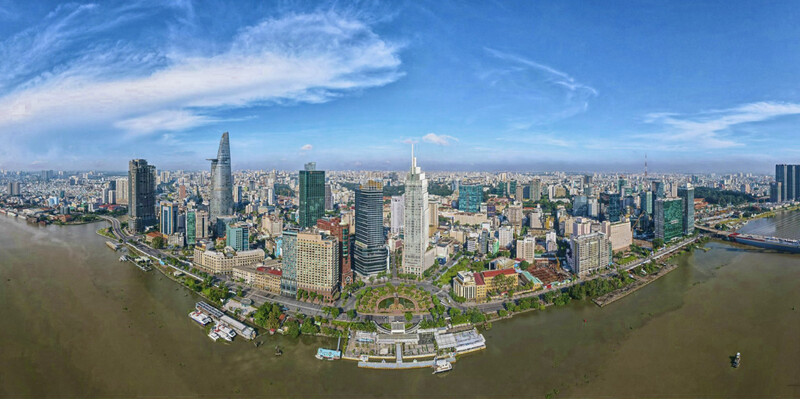
Explore more: Best Districts in HCMC for International Students
2. Share an Apartment or Room
Sharing a student apartment in HCMC is one of the easiest ways to save money. Splitting rent and utility costs for foreign students in HCMC reduces monthly expenses by 30–40%. Beyond the savings, it offers a chance to build friendships, practice language skills, and enjoy cultural exchange. Just make sure your lifestyle (study habits, cleanliness, noise tolerance) aligns with your roommates to keep daily life comfortable.
3. Negotiate Rent and Contracts
Don’t hesitate to negotiate — many landlords in HCMC offer discounts for 6–12 month contracts. Be cautious with deposits and never pay in full without a clear, written agreement. Avoid random listings with no contract, as they can lead to hidden fees or legal issues later on.
Read more: How to Rent Student Apartments in Vietnam: Legal Guide & Tips
4. Watch Out for Hidden Costs
Beyond rent, expenses like electricity, water, and Wi-Fi can add up quickly. Always check whether these are included in the rent, and compare local rates to avoid overpaying. Some buildings may also charge extra for parking, elevators, garbage collection, or “service fees.” To protect your budget, ask for a detailed cost breakdown in the rental agreement before signing.
Read more: Student Apartment Costs in HCMC: Rent, Utilities, Living Expenses
5. Choose Furnished Apartments
Unfurnished apartments may look cheaper at first, but the cost of buying furniture and appliances can quickly outweigh any savings. Furnished housing not only saves money but also time and effort, making your move-in process much smoother.
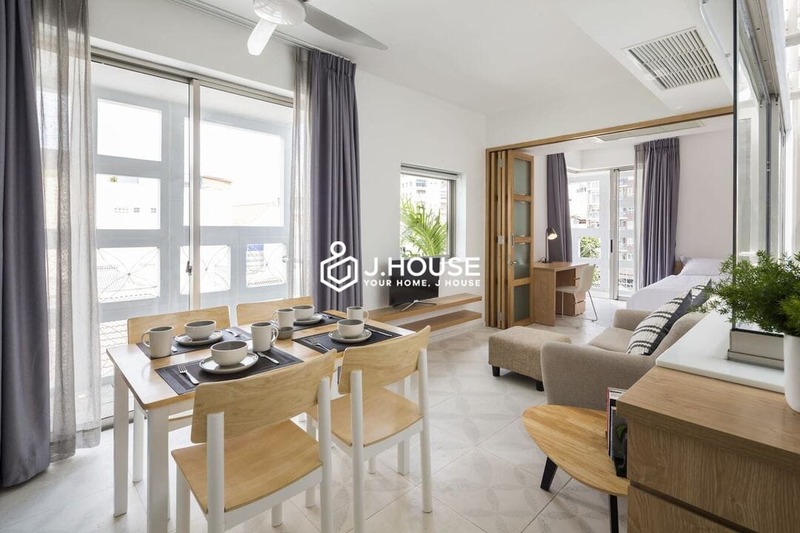
Smart Daily Living Hacks to Save Money
1. Eat Like a Local
Street food in Vietnam is legendary—affordable, tasty, and varied. A hearty meal like cơm tấm, phở, or bánh mì often costs just $1–2, while dining in international restaurants can be 3–5 times more expensive. Cooking at home is the cheapest option, especially if you share grocery and kitchen costs with roommates.
2. Smarter Transportation Choices
Owning a motorbike seems convenient, but fuel, parking, and maintenance add up quickly. For students, it’s often cheaper (and safer) to:
- Use public buses or student metro passes.
- Carpool with classmates to split commuting costs.
- Consider a motorbike later, once you know the city better and plan to stay long-term.
3. Cut Utility Bills
Electricity is one of the biggest monthly expenses, especially during hot months. Small changes can save you a lot:
- Use fans instead of AC whenever possible.
- Switch off appliances when not in use.
- Choose energy-efficient bulbs and fans for long-term savings.
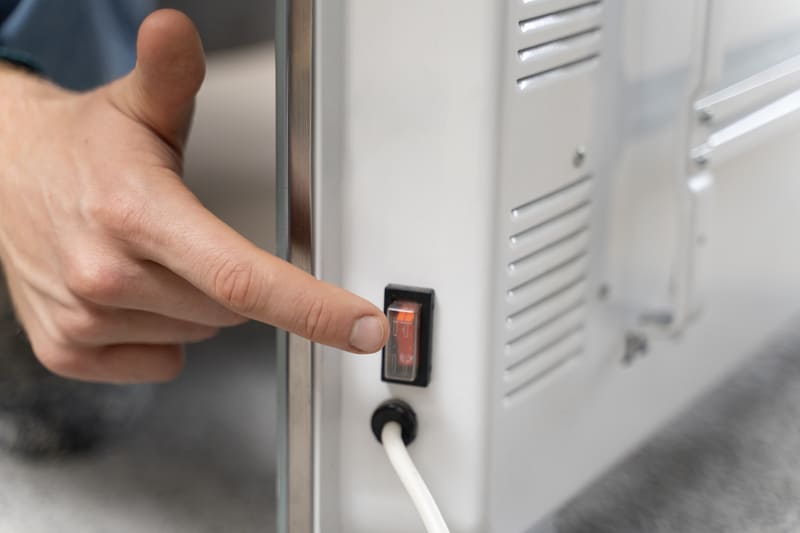
Long-Term Savings Tips for International Students
When living in Ho Chi Minh City, small daily savings add up, but it’s the long-term strategies that truly help you manage student apartment costs and overall living expenses wisely. These habits not only keep your budget steady but also give you peace of mind throughout your studies.
- Build Local Connections: Join expat or student communities to find affordable housing, roommates, and shared resources.
- Create a Monthly Expense Breakdown: Track rent, utilities, food, transport, and leisure to spot savings opportunities.
- Set Up a Savings Fund: Put aside a small monthly amount for emergencies or unexpected costs.
- Share Resources with Roommates: Split Wi-Fi, household supplies, and subscriptions to reduce monthly bills.
- Invest in a Motorbike for Long-Term Mobility: Cheaper than daily Grab rides and convenient for commuting.
- Plan Semester-Long Transportation Passes: Buy long-term bus or metro passes to save on daily commuting.
Following these strategies helps international students save consistently, avoid financial stress, and enjoy life in HCMC over the long term.
Student Discounts & Local Lifestyle Hacks
Living in Ho Chi Minh City doesn’t have to break the bank—international students can make the most of student perks and local habits to stretch their budget.
- Student ID perks: Always carry your student ID — it unlocks discounts on gym memberships, cinema tickets, bookstores, and even bus fares.
- Food delivery apps: Use GrabFood, ShopeeFood, and Baemin, which constantly offer vouchers for cheaper meals.
- Second-hand markets: When setting up your apartment, check Facebook Marketplace, expat forums, and local flea markets for affordable furniture and appliances instead of buying new.
- Low-cost entertainment: Join university clubs, attend cultural festivals, or explore public parks for socializing without spending much.
- Daily savings hacks: Small habits like using prepaid SIM cards for cheaper data, buying water in bulk instead of small bottles, and shopping for fresh produce at traditional markets instead of supermarkets can cut costs significantly.
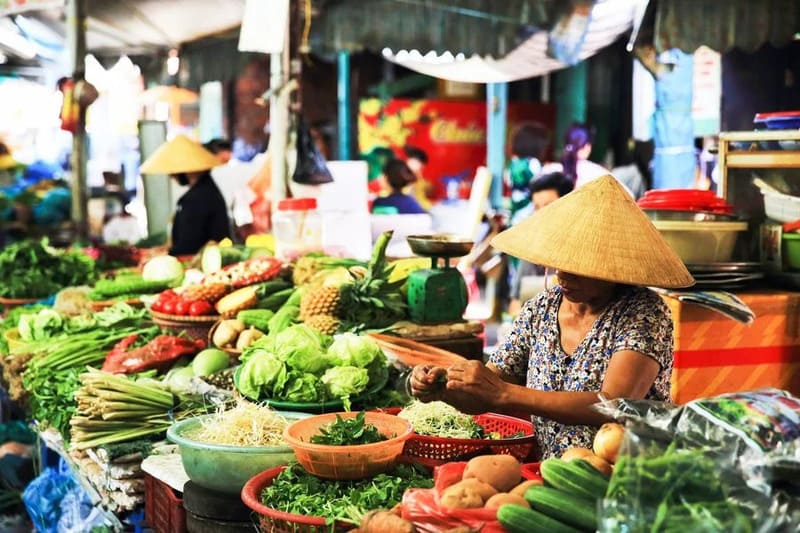
By combining these simple lifestyle hacks, international students can cut living costs by 30–40% while experiencing local life to the fullest.
Read more: Essential Apps & Resources for International Students in VietnamCost Comparison: Budget Student vs. Carefree Spender
International students in HCMC can live on very different budgets depending on lifestyle choices. Here’s a quick comparison:
| Lifestyle | Monthly Cost Estimate | Notes |
| Budget Student | $300–400 per month | - Shared housing - Local street food - Bus/metro transport |
| Carefree Spender | $600–800+ per month | - Studio apartment in District 1 - Expat-friendly dining - Personal motorbike |
With smart money-saving habits, you can avoid financial stress and enjoy a balanced, fulfilling study abroad life.
Where to Find Trusted Apartments in HCMC
Finding safe and affordable housing in HCMC can be daunting for international students. Choosing the right channel helps you avoid scams and ensures a smooth move-in. Reliable options include:
- JHouse: verified listings designed specifically for international students, with clear contracts and transparent pricing.
- University networks & student groups: a great way to find roommates, shared apartments, or insider deals.
- Trusted Facebook communities: active groups with reviews and tips from current students.
Note: Avoid random listings, upfront payments without contracts, or deals that seem too good to be true.
Quick Checklist for Saving on Student Rentals
Before signing a lease in HCMC, review these essential points to secure the best deal, save money, and find a safe, convenient apartment:
- Compare apartment prices: Check multiple listings for international student apartments to ensure fair rental rates.
- Negotiate rent and contract terms: Ask landlords about discounts for long-term leases or included utilities.
- Consider location wisely: Choose districts close to your university or public transport to cut commuting costs.

- Look for furnished or shared apartments: Reduce extra spending on furniture, appliances, and monthly bills.
- Check for hidden fees: Review deposits, service charges, and utility costs carefully to avoid surprises.
- Confirm security features: CCTV, gated access, or keycard systems protect your belongings.
- Understand house rules: Guest policies, curfews, and roommate agreements prevent conflicts.
Following this checklist helps international students save money on rent while securing a safe and comfortable home, laying the groundwork for a smooth, enjoyable study experience in HCMC.
Conclusion
Mastering money-saving tips for student housing in HCMC allows international students to avoid financial stress, hidden fees, and culture shock while making the most of their study abroad experience. From choosing the right district and sharing apartments to enjoying local street food, using student discounts, and adopting everyday budgeting hacks, these strategies help you stretch your budget without sacrificing comfort or convenience.
At JHouse, we go beyond offering safe, affordable, and verified housing. Our team provides guidance, resources, and personalized support to help students live smarter, save more, and experience HCMC like a local. Start your student journey with confidence, enjoy a worry-free stay, and make your time in Vietnam both budget-friendly and unforgettable—discover your ideal home with JHouse today.
JHouse Content Team
The in-depth content development team on housing services for foreigners & Vietnamese in Vietnam. The content is simple, easy to understand, and logically arranged to bring readers useful topics and information from real experiences.
International Student Life in HCMC: Culture, Safety & Daily Life
International Student Life in HCMC: Study Abroad, Safety & Culture
Peaceful yet vibrant, International Student Life in HCMC is an adventure that goes far beyond lectures and textbooks. This fast-growing city welcomes you with energy, culture, and endless opportunities — but also challenges that every newcomer faces.
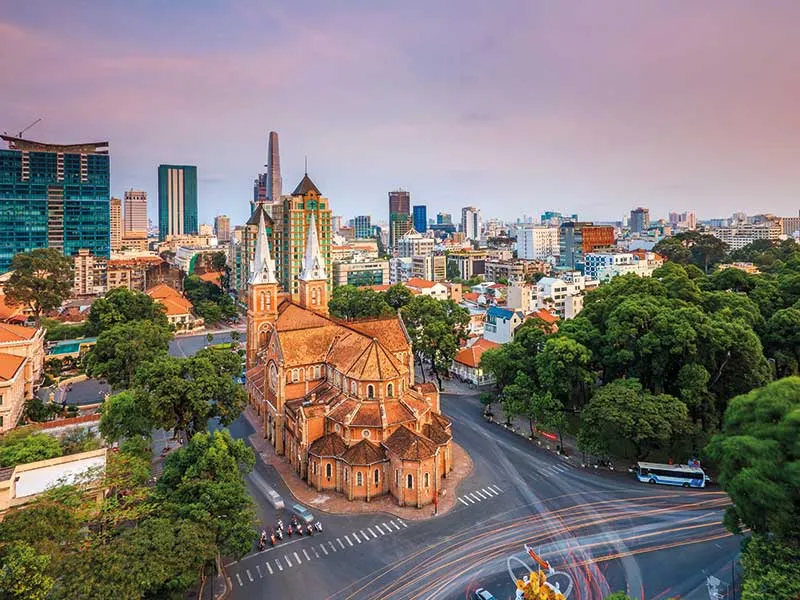
In the first weeks, many students feel both excitement and uncertainty: Is Ho Chi Minh City safe for international students? How do you adapt to daily life here? What cultural experiences truly shape your journey? These questions are real “pain points,” but they’re also the start of growth.
In this article, we’ll uncover the essentials of safety, share daily life tips, and explore cultural insights that help you not just survive, but thrive. If you want to turn Ho Chi Minh City into more than a study destination — into a place that feels like home — this is where your journey begins.
A City That Shapes Your Student Journey
Living in Ho Chi Minh City as an international student means stepping into a world that’s both dynamic and deeply authentic. The city pulses with energy — motorbikes weaving through busy streets, cafés tucked into quiet corners, and local markets alive with color and sound.
Student life here isn’t only about classrooms. It’s about discovering how tradition and modernity coexist: students studying late in cozy coffee shops, families gathering at street food stalls, or friends celebrating cultural festivals together. These everyday moments reveal what studying abroad in HCMC truly feels like.
At first, the pace can be overwhelming. Language gaps, unfamiliar customs, or even the tropical heat may test your comfort zone. Yet each challenge is a gateway — helping you grow more adaptable, connect across cultures, and create your own story in a city that reshapes not just your student journey, but also your perspective on life.
International Student Life in HCMC: Culture, Safety & Daily Life
For every international student in HCMC, the journey goes beyond academics. Culture, safety, and everyday living are the three pillars that shape how you adapt, connect, and thrive in Vietnam.
1. Discovering Culture Beyond the Classroom
Ho Chi Minh City thrives on its cultural mix, where French colonial villas, ancient pagodas, and modern skyscrapers in District 1 create a unique backdrop for daily student life.

For many international students, cultural discovery begins with food: sharing a bowl of phở at a street stall, sipping cà phê sữa đá in a hidden café, or trying tropical fruits at a local market. These small routines not only make daily living more enjoyable but also balance the cost of living for international students in HCMC.
Community events and language exchanges in areas like Thao Dien or Phu Nhuan connect you with locals and other students. Such experiences help ease adjustment, making the international student lifestyle in HCMC feel more like home while blending global habits with Vietnamese traditions.
2. Safety: A Key Concern for Every International Student
One of the first questions newcomers ask is: “How safe is HCMC for international students?” The city is generally welcoming and safe, but staying alert is essential.
Smart safety habits make life smoother:
- Choose student housing with CCTV, keycard access, and 24/7 guards.
- Keep valuables secure in crowded areas.
- Use Grab or trusted taxis instead of random motorbike rides.
- Stay connected with family online, especially during your first months.
Minor theft can occur, but violent crime is rare. Think of safety as part of everyday routines — just like budgeting for HCMC student accommodation expenses. With the right mindset, you’ll enjoy peace of mind while adapting to the international student lifestyle in HCMC.
Read more: Safety Tips for International Students Renting Apartments in HCMC
3. Daily Life: From Housing to Transportation
Daily life for international students in Ho Chi Minh City often starts with finding the right place to live. Student rent varies widely, from budget rooms to modern serviced apartments with pools and gyms. Many choose shared housing near universities, balancing cost, convenience, and community. Popular areas like District 3, Binh Thanh, and Thu Duc offer affordability and easy campus access.
Transportation is another consideration. With buses, a developing Metro, and ride-hailing apps like Grab, getting around is simple. For motorbike riders, secure parking and helmets are essentials.
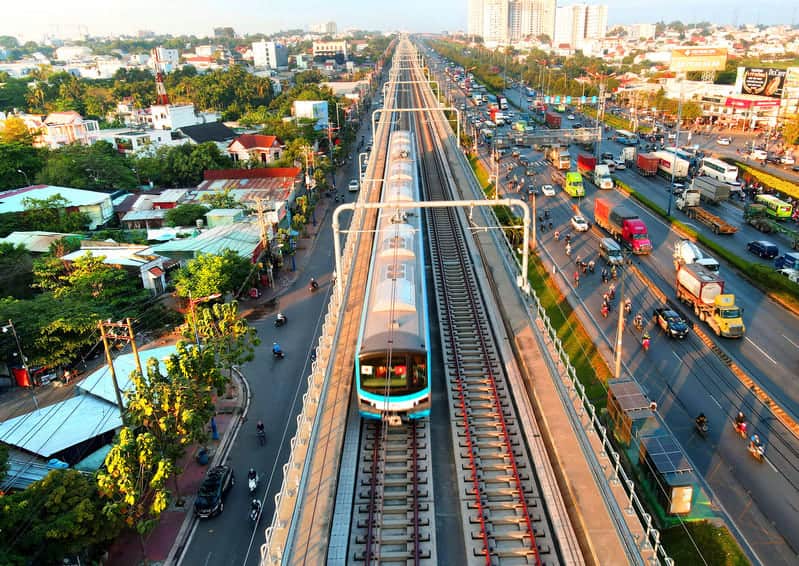
Living expenses remain manageable: street food often costs $2, and utilities or internet are budget-friendly, especially when shared. With smart planning, students can cover housing, manage costs, and enjoy HCMC’s vibrant lifestyle.
Read more: How to Find Affordable Student Apartments in Ho Chi Minh CityFinding Balance: Study, Culture & Community
The essence of expat student life in Vietnam isn’t only about surviving — it’s about thriving. Balancing studies with cultural discovery creates a fulfilling journey.
Work-life balance for students often means mixing learning with community. Joining clubs, volunteering, or simply spending weekends exploring neighborhoods like District 5 (with the Cholon area) or District 7 (with its international vibe) provides refreshing breaks from study pressure.
Adapting to life as an international student in Vietnam can be smoother when you create routines that nourish both mind and body. Morning workouts along the Saigon River, evening language exchanges, or even cooking local dishes with friends make your life richer and more connected.
Read more: Weekend Activities and Must-Visit Places for Students in HCMCBuilding Your Support Network
No international student should feel alone in Ho Chi Minh City. Student communities are growing and diverse, from Facebook groups and campus clubs to international student associations. Connecting with peers helps you adjust to local culture, discover affordable student housing for foreigners, and share tips on transport, budgeting, or daily life.
These networks turn challenges into opportunities, making it easier to navigate city life. Whether it’s meeting for coffee or joining events, building a support system is key to thriving. For any newcomer, these connections form the backbone of a confident, balanced, and enjoyable international student lifestyle in HCMC.
Read more: International Student Guide: Friends & Community in HCMCWhy International Student Life in HCMC Is Worth It
Every challenge of adapting to Ho Chi Minh City — from sudden tropical rains to navigating local customs — becomes part of your personal growth. International students gain far more than academic knowledge; they develop resilience, independence, and cultural insight that textbooks alone cannot offer.

Living in HCMC means discovering bustling markets, vibrant street food, and hidden cafés that transform daily routines into adventures. Building friendships with fellow students and locals, joining language exchanges, or participating in community events adds richness to your international student lifestyle. Every day offers opportunities to explore, learn, and connect, making your journey abroad both transformative and unforgettable.
Read more: Street Food Guide for International Students in Ho Chi Minh CityFinal Thoughts: Thrive, Don’t Just Survive
International student life in HCMC comes with real challenges — from language barriers to cultural adjustments. Yet these are gateways to growth, confidence, and meaningful experiences. By staying curious, building community, and approaching each day mindfully, you can thrive rather than just survive.
Whether your stay is a semester or several years, Ho Chi Minh City invites you to embrace its culture, navigate daily life confidently, and enjoy every moment. From local festivals to weekend adventures, every experience can inspire growth, friendships, and unforgettable memories. When it’s time to find safe, comfortable, and well-located housing, JHouse is ready to help you start your journey and turn your HCMC experience into a chapter of discovery and connection.
JHouse Content Team
The in-depth content development team on housing services for foreigners & Vietnamese in Vietnam. The content is simple, easy to understand, and logically arranged to bring readers useful topics and information from real experiences.
Safety Tips for International Students Renting Apartments in HCMC
Safe Student Housing in HCMC: Essential Tips for Foreign Renters
For international students renting apartments in Ho Chi Minh City, the thrill of beginning a new chapter often comes with unexpected challenges. Scams, unsafe rentals, unclear contracts, or hidden costs can quickly turn what should be an exciting journey into unnecessary stress. One wrong decision may not only drain your budget but also impact your studies and daily peace of mind.

That’s why prioritizing safety is more than a precaution — it’s the foundation of a secure and enjoyable student life. This article provides practical safety tips, proven strategies, and local insights to help you spot red flags early, choose housing with confidence, and avoid the pitfalls many newcomers face. With the right preparation, you can secure safe student housing in HCMC and spend your time focusing on what truly matters: learning, connecting, and exploring Vietnam.
Why Safety Matters for International Students in HCMC
Living abroad is both exciting and challenging, especially when you’re far from home. Ho Chi Minh City offers a range of affordable housing options and vibrant neighborhoods, but not every listing is as safe as it appears. Student housing safety in Ho Chi Minh City goes beyond locks and gates — it requires awareness of the market, spotting red flags, and understanding your tenant rights.
Scams targeting foreign students are common, from fake online listings to deposits that mysteriously disappear. Some apartments may look secure in photos, but lack real safety measures like 24/7 security or proper fire exits. Others involve landlords who avoid contracts or hide additional costs until you’ve already moved in.
Recognizing these risks early can save you money, stress, and even protect your well-being. With the right knowledge and preparation, international students can choose housing that is not only affordable but also truly safe — allowing you to focus on your studies and life in Vietnam with confidence.
Read more: Student Apartments in HCMC: The Ultimate Guide for StudentsInternational Students Renting Apartments – What to Check First
Before signing a lease, every international student renting apartments in HCMC should go through a safety checklist to ensure no critical details are missed, giving you confidence and peace of mind when choosing your new home. See the details below:
1. Location and District Safety
Where you live in Ho Chi Minh City affects both your safety and daily life. Some districts are especially popular with international students:
- District 2 (Thao Dien): International community, serviced apartments, strong expat support.
- District 7 (Phu My Hung): Modern infrastructure, quiet streets, reliable security.
- Parts of Binh Thanh: Affordable, well-connected, growing expat hubs.

Avoid poorly lit or isolated areas — they may be cheaper but often lack security and transport. Choosing the right district helps ensure a safe and smooth student experience in HCMC.
Read more: Best Districts in HCMC for International Students
2. Rental Agreement Transparency
Clear paperwork is your strongest protection against hidden costs and disputes. Always:
- Request a written contract, ideally in English or bilingual format.
- Check what is included in the rent, such as the base rent, any deposits, and other agreed fees.
- Review conditions for deposit refunds, contract length, and early termination.
- Don’t rely on verbal promises — if it’s not in the contract, it may not be honored.
A transparent rental agreement protects your budget, prevents surprises, and gives you confidence in your student housing choice.
Read more: How to Rent Student Apartments in Vietnam: Legal Guide & Tips
3. Building Security
Strong building security protects not just your belongings but also your personal safety while living in HCMC.
- Look for 24/7 security staff, CCTV coverage, and keycard access at main entrances.
- Ask current tenants about their real experience with safety in the building.
- Check for fire exits, smoke detectors, and emergency lighting — essentials often overlooked in student rentals.
A secure building gives you peace of mind, allowing you to focus on studies and daily life instead of constant worries.
Read more: Must-Have Amenities in a Student Apartment in Ho Chi Minh City4. Transportation Access
Safe and convenient transport options are key to stress-free student life in HCMC.
- Choose buildings with well-lit, secure parking areas for motorbikes or bicycles — ideally with CCTV or guard supervision.
- Prioritize locations within walking distance to universities or bus routes to minimize late-night commuting risks.
- Check road conditions around the building; quiet, isolated alleys may be unsafe after dark.

Reliable transportation access keeps your daily routine safer, easier, and far less stressful.
Common Scams and How to Avoid Them
Apartment scams targeting international students in Vietnam are unfortunately common. Here’s how to stay safe and avoid costly mistakes:
- Fake Listings: Some apartments look perfect online, but don’t actually exist. Never transfer money before visiting, and rely on trusted agencies or your university’s housing board.
- Deposit Tricks: Landlords may ask for deposits without clear refund rules. Always clarify cancellation and refund conditions before paying.
- Hidden Costs: Extra fees for electricity, water, internet, or parking can appear after you move in. Ask about all potential costs upfront.
- No-Contract Rentals: Avoid “cash only” deals that come without a legal contract — these can leave you unprotected.
Tip: Renting safely is easier when you work with established housing providers like JHouse, who offer clear contracts and trustworthy landlords, giving you peace of mind while living in HCMC.
Practical Safety Measures for Student Rentals
Ensuring your safety in Ho Chi Minh City goes beyond choosing the right apartment — it's about establishing daily habits that protect you and your belongings. Here are some practical steps to enhance your security:
- Always lock windows and doors, even when you're at home.
- Keep access cards private — avoid sharing them with neighbors or strangers.
- Store valuables securely, away from windows or balconies, to deter potential theft.
- Save emergency contacts on your phone, including local police, the nearest hospital, and your embassy.

By integrating these habits into your daily routine, you not only safeguard your possessions but also cultivate a sense of security in your new environment. Remember, a proactive approach to safety is key to enjoying your time in Vietnam with peace of mind.
Choosing the Right Type of Housing
Finding the right place to live is one of the most important steps for a smooth student experience in Vietnam. Each type of housing comes with its own benefits and considerations:
- Serviced Apartments: Move-in ready with security and housekeeping — ideal for first-time international students who want convenience and peace of mind.
- Shared Housing: Affordable and sociable, but make sure to know your housemates and understand the house rules.
- Studios/Condos: Independent living with modern facilities, though rent tends to be higher.
- Boarding Houses (Nha Tro): Budget-friendly and popular with locals, but they often offer minimal security.
Each option has pros and cons. The safest and most comfortable choice depends on your budget, lifestyle, and familiarity with local living conditions. Taking time to explore your options and ask current students for advice can help you find a place that feels like home while keeping you safe.
Read more: How to Find Affordable Student Apartments in Ho Chi Minh City
Budgeting for Safe Housing in HCMC
Finding a safe place to live doesn’t have to stretch your budget. While living costs for international students in HCMC can vary depending on location and lifestyle, here’s a rough guide to help you plan:
- Rent (student apartments): 250 to 600 USD per month
- Utilities and Internet: 50 to 100 USD per month
- Food: 200 to 350 USD per month
- Transportation: 30 to 70 USD per month

Including safety in your housing budget may mean slightly higher rent, but it is worth the investment. Secure student rentals help you avoid scams, theft, or the hassle of moving again. A small increase in your budget can provide peace of mind and a more comfortable living experience in HCMC.
Read more: Money-Saving Tips for International Students Renting in HCMCTech & Connectivity: Stay Secure Online
Being an international student in HCMC means staying connected with your family, keeping up with classes, and managing everyday life — and having a reliable internet connection is key. Fast, stable Wi-Fi not only helps you study effectively but also keeps you in touch with loved ones back home. Always:
- Choose a trusted provider like FPT, Viettel, or VNPT to ensure a stable connection.
- Protect your network: Avoid sharing your Wi-Fi password with strangers, as unsecured networks can put your personal data at risk.
- Stay alert online: Using secure connections helps safeguard your information and gives you peace of mind while living abroad.
Taking these simple precautions ensures that your online life in HCMC is both smooth and safe, letting you focus on studies, social connections, and exploring the city without worry.
Read more: Essential Apps & Resources for International Students in VietnamCommunity and Support Networks
Safe housing isn’t just about locks or security systems — it’s also about the people around you. Building connections with a supportive community can provide an extra layer of protection for international students living in HCMC.
- Join Facebook groups such as Expats living in Ho Chi Minh or HCMC Student Housing to get advice, warnings, and updates on rentals.
- Connect with student associations at your university to meet peers who understand local living and can share firsthand experiences.
- Attend local events to make friends who can provide trusted rental tips and guidance.

A supportive community can become your safety net — someone to warn you about scams, recommend reliable landlords, or assist in emergencies. Being connected not only helps you feel safer but also makes life in HCMC more enjoyable and stress-free.
Read more: International Student Guide: Friends & Community in HCMCFinal Thoughts: Stay Smart, Stay Safe
For international students renting apartments in Ho Chi Minh City, safety should always come first. From spotting scams and reviewing rental agreements to choosing the right district, small, careful decisions lay the foundation for a secure and comfortable student life.
At JHouse, we believe a safe and reliable home is more than avoiding risks — it gives you the freedom to focus on your studies, build friendships, and explore all that Vietnam has to offer. Paying attention to details like contract transparency, neighborhood safety, and trusted housing providers helps prevent surprises and stress.
Don’t let rental worries hold you back. Choose wisely, stay alert, and make your student experience in HCMC both safe and truly rewarding with JHouse.
JHouse Content Team
The in-depth content development team on housing services for foreigners & Vietnamese in Vietnam. The content is simple, easy to understand, and logically arranged to bring readers useful topics and information from real experiences.
Must-Have Amenities in a Student Apartment in Ho Chi Minh City
Must-Have Student Apartment Features for International Students in HCMC
Finding the right place to live can shape your entire student journey in Ho Chi Minh City. For international students, comfort goes beyond rent or location—it's the must-have amenities in a student apartment that truly define your daily experience.

You’ll need: stable Wi-Fi for classes and late-night calls home, secure access that gives you peace of mind, laundry at your doorstep, and shared spaces where friendships begin. Without these essentials, small inconveniences can quickly turn into constant stress, draining both time and money.
This guide is designed to help you spot the student apartment features that matter most in HCMC, avoid common rental pitfalls, and choose housing that supports both your studies and lifestyle. With the right amenities, your apartment becomes more than a room—it becomes your home base in Vietnam.
How the Right Apartment Features Shape Student Life in HCMC
Studying abroad is thrilling, but the reality of daily life can quickly catch up with you. International students in Ho Chi Minh City already juggle academics, cultural differences, and the challenge of building new friendships.
Without the right student apartment amenities, even small details can become major stress points. Poor lighting makes late-night study sessions exhausting. A missing desk or chair forces you into noisy cafés. No shared lounge? You lose the chance to connect with other students. And when appliances break down without maintenance support, it’s both time-consuming and costly.
Amenities are more than “nice-to-haves.” They’re what transform an ordinary rental into a supportive home where you can focus, relax, and grow. The right features protect your budget, safeguard your well-being, and ultimately shape whether you thrive during your time in HCMC.
Read more: Student Apartments in HCMC: The Ultimate Guide for StudentsEssential Amenities in a Student Apartment
Here’s a breakdown of the must-have student apartment features in Ho Chi Minh City, focusing on what international students really need to feel at home.
1. High-Speed Internet & Strong Wi-Fi
For international students, strong internet isn’t optional—it’s the backbone of daily life. Online classes, research projects, late-night calls with family, and even streaming for relaxation all depend on it. A weak connection can mean dropped lectures, interrupted exams, or wasted hours in noisy cafés.

Tip: Don’t just ask if Wi-Fi is included in rent—check how fast it is, how many devices can run at the same time, and whether support is available when issues occur. Some student-friendly apartments even cover the cost of maintenance, saving you money and stress.
2. Security & Safety Measures
Safety should be non-negotiable when choosing a student apartment in Ho Chi Minh City. As an international student, you’re often far from family support—so your housing must provide real peace of mind. Look for:
- 24/7 security staff or reception to monitor the building
- CCTV in common areas for added visibility
- Secure entry systems, like magnetic cards or digital codes, to prevent strangers from entering
Tip: Before signing, ask the landlord about security staff schedules, camera coverage, and how lost keys or access cards are handled. Your safety is worth prioritizing over small savings.
Read more: Safety Tips for International Students Renting Apartments in HCMC3. Fully Equipped Kitchen
A well-equipped kitchen is more than just a convenience—it’s the heart of affordable, healthy student living. For international students in HCMC, being able to cook at home means recreating favorite dishes from back home, sharing meals with friends, and saving money compared to eating out daily.
Essential features to look for include:
- Stove and fridge for everyday cooking
- Microwave or rice cooker for quick, easy meals
- Shared or private cooking space, depending on your budget
- Adequate storage for groceries and utensils
Tip: Check if the apartment provides proper ventilation and ask how shared kitchens are maintained. Some even offer weekly cleaning, which makes a huge difference.
4. Laundry Facilities
Laundry is one of those everyday tasks that can either be simple or a constant headache. No student wants to haul bags of clothes through crowded streets or wait hours at a public laundromat. That’s why on-site washing machines or in-house laundry services are must-have features in student housing. They save time, cut down on expenses, and give you the flexibility to do laundry whenever your schedule allows.
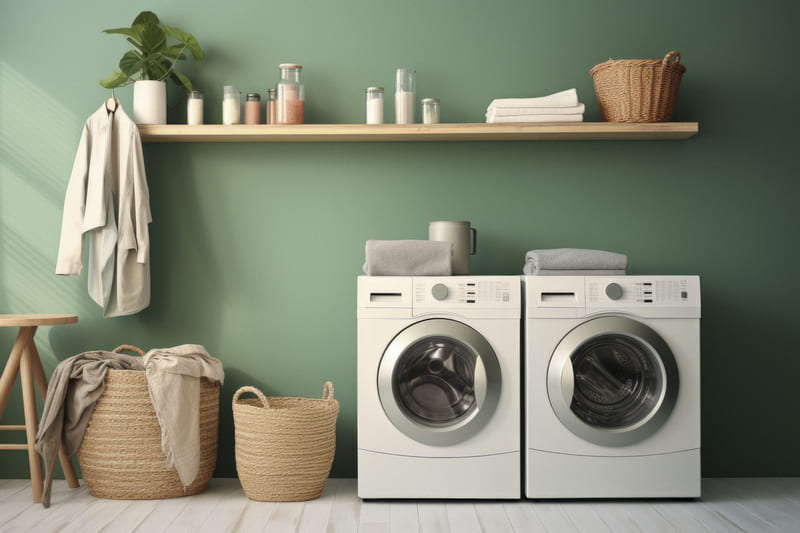
Tip: Always ask if laundry use is free or charged separately—hidden fees can pile up fast, so clarify before you sign the lease.
5. Study-Friendly Space
A dedicated study area is essential for focus and productivity. Whether it’s a personal desk or a shared lounge, it helps you stay on top of assignments without distractions.
Tip: When viewing apartments, check the lighting, desk size, and whether the space feels comfortable for long hours of study.
6. Utilities & Maintenance
Electricity, water, and air-conditioning are essentials in HCMC’s climate. Transparent billing helps you budget without surprises. Look for apartments that include:
- Air conditioning – crucial in HCMC’s heat
- Hot water – for daily comfort
- Regular maintenance service – quick repairs save time and stress
Tip: Ask if utilities are included in rent and how fast maintenance requests are handled.
7. Social & Shared Spaces
Adjusting to life in HCMC is easier when you’re not alone. Social amenities like shared lounges, rooftop gardens, or common kitchens give you places to relax, meet fellow students, and build friendships that make daily life less isolating.
Tip: When viewing apartments, check whether common areas are well-maintained and actually used by residents—it’s a great sign of a supportive community.
Read more: International Student Guide: Friends & Community in HCMCSecondary Features That Make Life Easier
Beyond the basics, certain modern amenities can significantly elevate the student lifestyle in HCMC. They may not be deal-breakers, but having them makes daily life smoother and more enjoyable:
- Gym or fitness room → saves money on memberships and keeps you healthy
- Bicycle/motorbike parking → crucial for safe, stress-free commuting
- Housekeeping service → prevents chores from eating into your study time
- Furnished rooms → cut down on upfront furniture costs and hassle
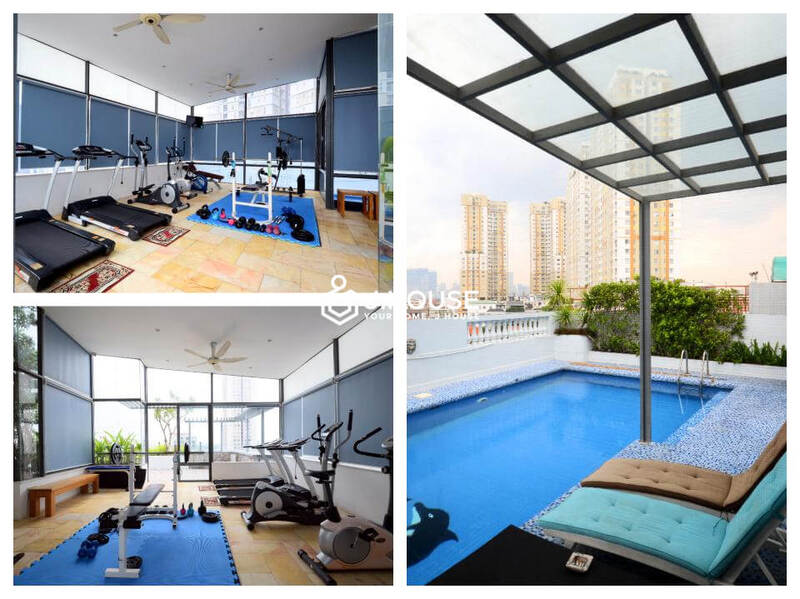
Without these extras, students often face higher expenses and more daily stress. But with them, your apartment shifts from being “just a place to stay” into a supportive home where you can thrive.
Checklist: What to Ask Before Signing the Lease
Before you commit to a student apartment in HCMC, make sure you ask the right questions to avoid hidden costs and unpleasant surprises:
- Is Wi-Fi included and reliable? Slow internet disrupts classes and calls.
- How is security managed? Ask about guards, CCTV, and entry systems.
- Are utilities included or billed separately? Prevent budget shocks.
- What furniture and appliances are provided? Replacing items is costly.
- Is there on-site laundry? Saves time and money weekly.
- Are there study areas or social spaces? Helps balance study and community life.
Having this checklist ensures you spot issues early and sign a lease with confidence.
Read more: How to Rent Student Apartments in Vietnam: Legal Guide & Tips
Budgeting for Student Apartment Features in HCMC
Amenities make life easier, but they also affect your monthly budget—so plan wisely. On average, international students in HCMC spend around:
- $300–$500/month for a serviced apartment or shared serviced unit—this range offers comfort, security, and essential amenities tailored to student needs
- $50–$70/month extra for utilities and internet if not included in rent
- Higher costs for apartments with gyms, cleaning, or modern kitchens—but these can offset other expenses (like gym memberships or daily café study sessions)
Note: While cheaper options under $300 exist, they often lack essentials such as 24/7 security, reliable maintenance, or proper study space. For long-term comfort and peace of mind, choosing a serviced apartment in districts like Binh Thanh orDistrict 3 can balance both quality and cost compared to premium hubs like District 1 or Thao Dien.
Read more: Student Apartment Costs in HCMC: Rent, Utilities, Living Expenses
Avoiding Common Pitfalls
Many first-time international students rush into leases without double-checking amenities—only to face stress and extra costs later. Common mistakes include:
- Choosing a “cheap” room but ending up with high bills for laundry and internet
- Feeling unsafe in buildings with poor or no security
- Struggling with no desk, poor lighting, or lack of study space—forcing daily trips to cafés
These issues don’t just drain your budget; they can affect your well-being and academic performance.

Tip: Avoid random listings without contracts. Instead, work with trusted housing agencies like JHouse, where student apartment prices for international students are transparent, secure, and tailored to real student needs.
Final Thoughts: Living Smart - Choose Amenities That Support Your Journey
Choosing the right place to live isn’t just about price—it’s about protecting your time, budget, and peace of mind. Many international students discover too late that missing amenities lead to hidden costs, daily frustrations, and even safety concerns. The must-have amenities in a student apartment are what turn your housing into a reliable base for study and life in HCMC.
Don’t let small oversights grow into major setbacks. By prioritizing essentials from the start, you can avoid stress and focus on making the most of your student years in Vietnam.
Start your student journey smart: Work with a trusted partner like JHouse, where every apartment is thoughtfully equipped to support international students—with modern amenities, reliable services, and a welcoming community for a smoother journey.
JHouse Content Team
The in-depth content development team on housing services for foreigners & Vietnamese in Vietnam. The content is simple, easy to understand, and logically arranged to bring readers useful topics and information from real experiences.
How to Rent Student Apartments in Vietnam: Legal Guide & Tips
Student Housing in Vietnam: Contracts, Deposits & Legal Tips
Rent Student Apartments in Vietnam can feel overwhelming, especially for international students who deal with language barriers, unfamiliar rental practices, and hidden costs. Contracts are often written only in Vietnamese, deposit policies vary widely, and rules are not always transparent — making the process seem more like a legal maze than a simple housing search.

Yet Vietnam also offers exciting opportunities: affordable student housing, a wide range of apartment styles, and vibrant neighborhoods close to universities. With the right preparation, you can avoid costly mistakes, protect your deposit, and secure a safe home that supports your study life. The key is knowing what to check before signing — from contracts and utilities to deposit rules and legal obligations.
This guide will walk you through essential legal tips and practical advice every student should understand before committing to a lease in Vietnam.
Rent Student Apartments in Vietnam: Why It’s Not Always Simple
Vietnam is affordable compared to many countries, but renting student apartments in Vietnam often comes with challenges hidden beneath the surface. Many students sign a lease too quickly, only to face unclear contract terms, unexpected bills, or landlords who refuse to return deposits. Imagine losing two months of rent simply because the rules about “normal wear and tear” were never clarified.
For international students, the language gap makes things even more complicated. Without proper guidance, it’s easy to overlook critical details in the rental agreement — such as who is responsible for repairs, when rent must be paid, or what penalties apply if you leave early. These oversights can quickly turn affordable housing into a stressful financial burden.
The good news? The system isn’t broken — you just need to understand how it works. Knowing your legal rights and obligations before you move in is not just helpful, it’s essential for a smooth student life in Vietnam.
Read more: Student Apartments in HCMC: The Ultimate Guide for StudentsWhat to Check Before Signing a Lease
Before signing a lease, it’s important to slow down and review every detail. Renting as an international student isn’t just about finding a place you like — it involves legal documents, financial commitments, and rules that can affect your entire stay in Vietnam. Missing even a small clause could cost you money or create unnecessary stress later. To help you rent with confidence, here are the key areas you should examine carefully before committing to a student apartment.
1. Reviewing Your Lease Agreement
Your rental contract is more than paperwork — it’s your main protection as a student. Always insist on a written agreement; never rely on verbal promises. At a minimum, the contract should outline the rental period, payment terms, deposit rules, notice period, and responsibilities for repairs. If it’s only in Vietnamese, have it translated to avoid costly surprises.

Before signing, read between the lines:
- Rental Term – Most leases are 6–12 months. Negotiate if you need shorter.
- Termination Clause – Without one, you risk losing rent and deposit if leaving early.
- Bills & Utilities – Clarify what’s included, as utilities in Vietnam are often separate.
- Repairs & Maintenance – Confirm which repairs are yours vs. the landlord’s.
- Move-in Condition – Take photos and keep a signed checklist to protect your deposit.
By carefully checking these details, you’ll avoid disputes and secure a fair, transparent lease.
2. Deposits — Protecting Your Money
Deposits are the number one pain point for international students renting in Vietnam. Standard practice is paying 1–3 months’ rent upfront, but the rules for getting it back are often vague. Many students are shocked when landlords deduct large sums for so-called “wear and tear” or refuse refunds entirely.
To protect your money, make sure you:
- Get it in writing – The contract should state refund conditions, deduction rules, and a clear repayment timeline.
- Request proof – Ask for a receipt when paying and create a handover record with photos and a checklist.
- Know your rights – By law, deposits must be refunded unless damage goes beyond normal use.
- Document everything – Keep evidence from move-in day to strengthen your case if disputes arise.
Think of your deposit as a financial safety net. Guard it carefully, and never hand over cash without knowing exactly how and when you’ll get it back.
Read more: Security Deposit Agreement: Free Download Sample Agreement 2021
3. Legal Requirements & Smart Tips
Renting student apartments in Vietnam isn’t just about price — it’s also about staying legally safe. As a foreign student, you’ll need a valid passport, visa, and proof of study for your lease. These aren’t mere formalities; they’re essential for maintaining a legal stay.
Equally important, landlords are required to register your stay with the local police — a step often overlooked. Without it, you could face fines or problems when extending your visa. Always confirm this has been done and keep copies of your documents.
To stay protected, keep these tips in mind:
- Never pay in full upfront – Monthly payments are the norm; avoid requests for 6–12 months’ rent.
- Check visa links – Your housing address may appear on visa or school documents. Ensure consistency.
- Use reputable platforms – Avoid random listings with no contracts. Rely on university boards, trusted Facebook groups, or agencies like JHouse, which specialize in safe, transparent housing for international students.
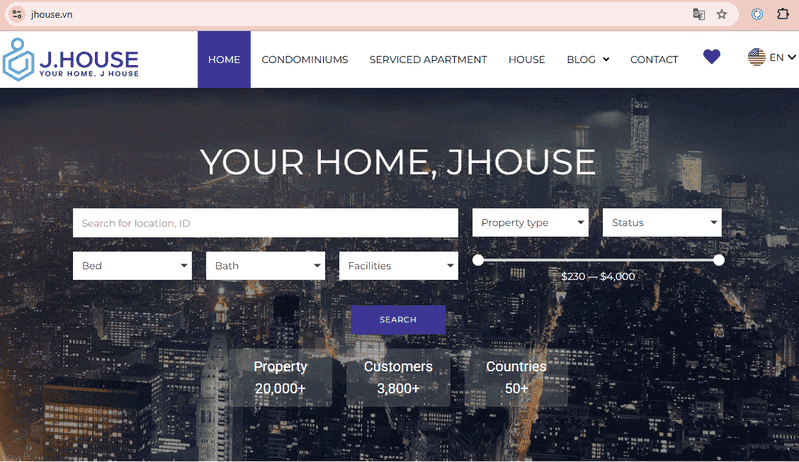
By mastering these basics, you’ll protect your rights and enjoy peace of mind throughout your stay.
Read more: Safety Tips for International Students Renting Apartments in HCMCSecondary Housing Options for Students
Not every student chooses a private apartment. Here are common alternatives:
- Shared Apartments – Split costs with roommates, ideal for international students who enjoy community living.
- Boarding Houses (Nhà trọ) – Very affordable, but often less secure and lacking privacy.
- Serviced Apartments – Fully furnished with cleaning and security, higher cost but stress-free for foreigners.
- Student Dorms – Convenient and social, though spaces are limited and rules can be strict.
Your choice depends on budget, comfort, and length of stay. Think beyond rent — consider safety, study focus, and the lifestyle you want to build while in Vietnam.
Read more: How to Find Affordable Student Apartments in Ho Chi Minh City
Common Mistakes International Students Make
Even with thorough preparation, many international students repeat the same mistakes when renting in Vietnam — and they can be costly.
- Skipping the Contract – Verbal promises often end in disputes.
- Not Clarifying Bills – Hidden fees for internet, parking, or building services add up fast.
- Paying Too Much Upfront – Overpaying out of fear risks losing months of rent.
- Ignoring Location – The cheapest option may cost more in transport and compromise safety.
Avoid these pitfalls to keep your housing truly affordable and stress-free.
Smart Negotiation Tips for Students
Negotiating rent in Vietnam isn’t rude — it’s expected. With the right approach, you can save money and avoid hidden costs. Here’s how:
- Research prices first – Know the average student apartment rent in your area to avoid overpaying.
- Negotiate with confidence – Many landlords expect it, and polite bargaining can cut costs significantly.
- Check furnished vs. unfurnished – Buying furniture later can quickly eat up your budget.
- Inspect Before You Commit – Check water pressure, internet speed, and noise levels before signing the lease.

Smart negotiation isn’t just about saving money — it ensures you get fair value and a rental that truly fits your needs.
Read more: Money-Saving Tips for International Students Renting in HCMCCost Overview: What to Expect
Budgeting for student housing in Vietnam means thinking beyond just rent. Here’s a rough breakdown for major cities like HCMC and Hanoi:
- Rent: $200–$500/month, depending on district and housing type.
- Utilities & Internet: $40–$80/month, usually billed separately.
- Deposits: $200–$1,000 (1–3 months’ rent), often the biggest upfront cost.
While Vietnam remains affordable compared to many countries, the deposit plus first month’s rent can add up quickly. Planning for these expenses ensures you’re not caught off guard and helps you focus on your studies and daily life instead of worrying about money.
Read more: Student Apartment Costs in HCMC: Rent, Utilities, Living ExpensesClosing Thoughts: A Confident Start to Student Life in Vietnam
Rent Student Apartments in Vietnam should feel like the start of an exciting chapter, not a risky gamble. With the right preparation — clear contracts, fair deposit terms, and basic legal awareness — you can avoid the common traps that catch many new students. That means less stress over money or disputes, and more energy for what really matters: your studies, your friendships, and your daily experiences in Vietnam.
At JHouse, we’ve supported countless international students in finding safe, reliable, and affordable housing. Our goal is simple: to make sure your student home gives you peace of mind, not problems, while helping you adapt smoothly to a new culture and lifestyle.
Choose wisely, protect your rights, and step confidently into student life in Vietnam — prepared, secure, and ready to thrive in every way.
JHouse Content Team
The in-depth content development team on housing services for foreigners & Vietnamese in Vietnam. The content is simple, easy to understand, and logically arranged to bring readers useful topics and information from real experiences.
Student Apartment Costs in HCMC: Rent, Bills & Living Expenses
Cost of Living for International Students in HCMC: Rent & Bills
Moving to Ho Chi Minh City for your studies is an exciting leap — but understanding Student Apartment Costs upfront can make or break your experience. Rent is just the start. Bills, internet, food, and transport all add up, and surprises can quickly stretch your budget if you’re not prepared.

Many international students arrive expecting low living costs, only to find expenses vary widely by location, housing type, and lifestyle. The good news? With the right information, you can enjoy a comfortable, vibrant life here without draining your savings.
This guide breaks down real prices, reveals hidden costs, and shares insider tips from fellow students so you can budget wisely, settle in smoothly, and make the most of your time in Vietnam — both inside and outside the classroom.
A Mindset Shift: From Visitor to Resident
Living in Vietnam as an international student isn’t just about finding a place to crash near your campus — it’s about creating a daily rhythm you can sustain for months or even years.
Beyond chasing cheap rent, you’ll want to think about comfort, safety, commute time, and the kind of community you’ll belong to. It’s the difference between simply passing through and actually building a life — where your apartment becomes a true home base, your neighborhood feels familiar, and everyday routines run smoothly.
When you plan around the total cost of living for international students in HCMC — from student apartment prices to food and transport — you’re not just budgeting money, you’re investing in peace of mind, richer connections, and a smoother daily routine.
Read more: Student Apartments in HCMC: The Ultimate Guide for Students1. Understanding Student Apartment Costs in HCMC for International Students
Student apartment costs in Ho Chi Minh City vary widely depending on the type of accommodation, location, and amenities. Below is a realistic breakdown so you can plan smart, avoid surprises, and find the best fit for your budget and lifestyle.
| Housing Type | Average Rent (USD) | Best For |
| Shared apartment | $120–$250 | Saving money, making friends, sharing bills |
| Studio apartment | $250–$450 | Privacy with a moderate budget |
| 1-bedroom apartment | $350–$600 | Extra space for couples or solo living |
| Serviced apartment | $400–$700 | Move-in ready, cleaning & services included |

Tip: District 1 and Thao Dien (District 2) often have higher student apartment prices for international students in HCMC, thanks to their convenience and expat-friendly amenities. For affordable student housing in HCMC for foreigners, consider Binh Thanh, District 3, or Go Vap — these areas balance lower rent with good access to universities.
Read more: How to Find Affordable Student Apartments in Ho Chi Minh City2. Rent and Utility Costs for Foreign Students in HCMC
Rent is only part of your monthly budget — utilities can add 15–25% to your total student apartment costs. For many newcomers, this is where expenses start to creep up, especially during Vietnam’s hot season.
- Electricity: 3,500–4,500 VND/kWh (heavy air-con use can double your bill in hot months)
- Water: 80,000–150,000 VND/month
- Internet: 200,000–350,000 VND/month (shared with roommates or paid individually)
- Trash & building fees: 50,000–100,000 VND/month
If you choose a serviced apartment, some utilities may be included — but always confirm rates and conditions before signing. Factoring in these rent and utility costs will help you get a more accurate picture of your cost of living for international students in HCMC.
Read more: Essential Apps & Resources for International Students in Vietnam
3. Hidden Costs to Watch Out For
Even when you find affordable student housing in HCMC for foreigners, your student apartment costs may be higher than expected because of extra charges that many newcomers overlook. These hidden costs can quickly add up if you’re not prepared:
- Deposit: 1–2 months’ rent, refundable if no damage.
- Parking fees: 100,000–200,000 VND/month for a motorbike.
- Cleaning service: Additional if not included in the rent.
- Furniture or appliance upgrades: Especially in older apartments.

Pro tip: Always clarify all potential fees with your landlord or agent — from deposits and utilities to parking and cleaning — and make sure these are written clearly in your rental contract. This way, you’ll have a solid reference if there’s ever a disagreement later.
Read more: How to Rent Student Apartments in Vietnam: Legal Guide & Tips
4. Choosing the Right District for International Student Housing
Your choice of location will directly impact your lifestyle, commute time, and even your student apartment costs. Here’s a quick guide to popular areas for international students in Ho Chi Minh City:
- District 1: Central hub for nightlife, shopping, and business; convenient but high rent.
- District 3: Central yet quieter, tree-lined streets, more affordable student rent in Ho Chi Minh City.
- Binh Thanh: Budget-friendly, close to major universities, one of the cheapest districts for international student housing in HCMC.
- District 7: Modern, clean, family-friendly, popular among Korean and Japanese communities.
- Thao Dien (District 2): Expat hotspot with international schools, cafes, and riverside apartments — pricier but with great amenities.
Tip: If you’re on a tight budget, Binh Thanh and District 3 offer good value without sacrificing convenience. For a more international atmosphere, Thao Dien and District 7 are top picks.
Read more: Best Districts in HCMC for International Students
5. Food Costs for Foreign Students in Vietnam
One of Vietnam’s biggest perks is its variety of affordable, delicious food. Street meals such as phở, bánh mì, or cơm tấm start at just 30,000–50,000 VND, while mid-range restaurants average 80,000–150,000 VND per dish.
Cooking at home can reduce your cost of living for international students in HCMC, especially if you shop at local markets where fresh vegetables, meat, and seafood are much cheaper than supermarkets. Exploring these markets is not only a way to save money but also a great cultural experience.
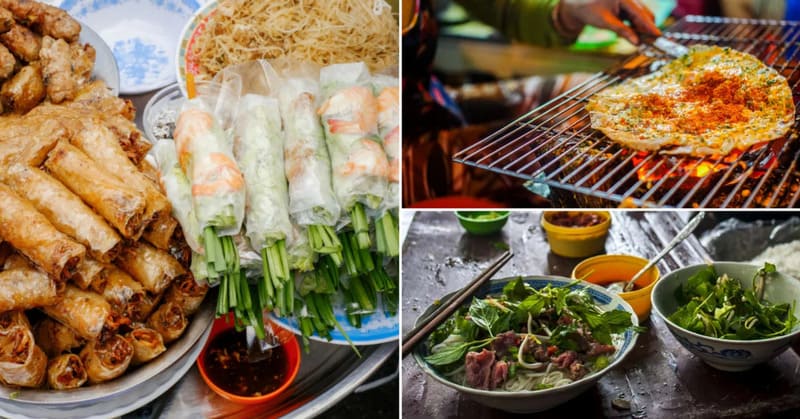
Tip: To keep your food costs for foreign students in Vietnam low, try eating at student-friendly canteens near universities or taking advantage of daily lunch specials at local cafes.
Read more: Street Food Guide for International Students in Ho Chi Minh City6. Transportation Costs
Getting around Ho Chi Minh City is generally affordable, but the choice of transport can influence your cost of living for international students in HCMC:
- Public bus: 7,000–15,000 VND/ride — cheapest option, safe, but slower and less flexible.
- Ride-hailing (Grab/Bee): $0.80–$3 per trip — convenient for short distances, no need to own a vehicle.
- Motorbike rental: $40–$60/month (+ fuel) — most flexible for daily commuting, but requires a license and riding experience.
Tip: Living near your campus can save you hundreds of dollars yearly in commuting costs. For extra savings, consider a monthly bus pass or sharing a motorbike with a roommate — smart moves for budget-conscious foreign students in Vietnam.
Read more: Essential Apps & Resources for International Students in Vietnam
7. Budget Tips for Foreign Students in Vietnam
Managing your student apartment costs wisely will help you enjoy life in Ho Chi Minh City without constant money stress. Here are some practical budget tips for foreign students in Vietnam:
- Share your apartment to split rent and utilities (shared apartments for international students often cut costs by 30–40%).
- Avoid short-term leases — they usually come with higher rates and less room for negotiation.
- Negotiate rent for stays over 6 months; many landlords are willing to offer discounts for longer commitments.
- Track expenses with a budgeting app like Money Lover or Spendee to avoid overspending.
- Shop smart — buy second-hand furniture, use student discounts, and watch for online delivery promotions.

Following these tips can keep you comfortable, social, and financially stable while still enjoying all the experiences HCMC has to offer.
Read more: Money-Saving Tips for International Students Renting in HCMC8. Sample Monthly Budget for International Students in HCMC
To help you plan your student apartment costs and overall living expenses in HCMC, here’s a realistic monthly budget comparison between a shared apartment and a studio apartment:
| Expense Type | Shared Apt. (USD/month) | Studio Apt. (USD/month) |
| Rent | $200 | $350 |
| Utilities & Internet | $40 | $60 |
| Food | $150 | $200 |
| Transportation | $30 | $30 |
| Miscellaneous (entertainment, etc.) | $50 | $70 |
| Total | $470 | $710 |
A shared apartment is ideal for those wanting to lower their cost of living for international students in HCMC while enjoying a social environment. A studio offers more privacy but comes with higher monthly expenses.
9. How to Avoid Overpaying for Student Apartments
Overpaying can quickly push your student apartment costs beyond budget, especially if you’re new to Vietnam. Here’s how to protect your wallet and find fair deals:
- Research in advance — compare listings on reputable housing websites (Like JHouse.vn), Facebook groups, and university notice boards before arriving.
- Join community groups focused on the international student lifestyle in HCMC to get firsthand advice from current students.
- Inspect apartment conditions carefully — check water pressure, air-conditioning, furniture, and any signs of damage before signing.
- Pay in VND, not USD, to avoid inflated prices and currency conversion losses.

With the right preparation, you can secure a comfortable home at a fair price — and keep more of your budget for enjoying life in HCMC.
Final Thoughts – Plan Your Stay, Live with Ease
Understanding your student apartment costs in HCMC isn’t just about saving money — it’s about creating the lifestyle you want while studying abroad. When you know what to expect for rent, utilities, and daily expenses, you can focus on your classes, explore the city, and connect with new friends without financial stress.
Your choice of location, housing type, and budgeting habits will shape your experience in Vietnam. From the buzzing streets of District 1 to the laid-back vibe of Binh Thanh, there’s a perfect fit for every student.
At JHouse, we specialize in helping international students find safe, affordable, and well-located homes, so you can settle in quickly and start enjoying life in Ho Chi Minh City with confidence. Make the most of your time here, immerse yourself in local culture, and build memories that will last a lifetime.
JHouse Content Team
The in-depth content development team on housing services for foreigners & Vietnamese in Vietnam. The content is simple, easy to understand, and logically arranged to bring readers useful topics and information from real experiences.
How to Find Affordable Student Apartments in Ho Chi Minh City
Guide to Student Housing in HCMC: Find Affordable Apartments
Vibrant, affordable, and full of opportunities — Ho Chi Minh City is a magnet for international students. The city greets newcomers with an exciting mix of modern conveniences, rich culture, and a lifestyle that blends study with adventure.

Settling into a new country is thrilling, but finding affordable student apartments can be stressful. You might wonder where to start, how to avoid overpriced listings, or which neighborhoods feel both safe and welcoming. Add in unfamiliar rental procedures and a busy study schedule, and the challenge feels even bigger.
The good news? HCMC has a wide range of housing options perfectly suited to student life — from budget-friendly shared flats to serviced apartments with all the essentials. This guide will walk you through the best choices, budget tips, and areas worth considering so you can focus on your studies and make the most of your time in Vietnam.
Student Life in Ho Chi Minh City: Energy, Culture, and Opportunity
Life as a student in HCMC is a mix of learning and discovery. Imagine starting your morning in a modern lecture hall at an international-standard university, stepping out for a quick bowl of phở, then spending your evening exploring colorful markets or watching the city lights from a rooftop café. This rhythm — fast-paced yet full of charm — is what makes the city unforgettable.
For international students, the appeal goes beyond academics. The cost of living is far lower than in most Western cities, making quality housing, delicious food, and social activities accessible even on a student budget. Getting around is easy and affordable with public buses, motorbike taxis, and the growing Metro network.
Most importantly, locals are famously warm and welcoming, offering a sense of comfort that makes settling in far from home much easier. Here, student life isn’t just about studying — it’s about growing, connecting, and embracing one of Asia’s most dynamic urban experiences.
Read more: International Student Life in HCMC: Culture, Safety & Daily LifeAffordable Student Apartments: What You Can Expect
Finding affordable student apartments in HCMC doesn’t mean compromising on comfort. Many modern units are move-in ready, fully furnished with air conditioning, Wi-Fi, and laundry facilities — making it easy to settle in from day one. Serviced apartments, a favorite among international students, often include weekly cleaning, security, and utility packages, offering both convenience and peace of mind.

Typical price range for students:
- Shared apartments: $150–$300/month per person
- Studios or one-bedroom units: $250–$500/month
- Serviced apartments near universities: $300–$600/month, depending on location and amenities
While some landlords prefer long-term leases, many are open to flexible terms if you can provide proof of enrollment. Flexible payment schedules are also common, helping you manage your budget without stress.
Tip: Before signing, confirm whether utilities are included, clarify the deposit terms, and ask about the surrounding noise level — it can make a big difference in how comfortable your stay will be in the lively streets of HCMC.
With a clear picture of the market, it’s time to take the first steps toward finding a place that matches your needs and budget.
Read more: Student Apartment Costs in HCMC: Rent, Utilities, Living ExpensesStep 1: Set Your Budget & Must-Haves
Before browsing listings, clarify your monthly budget and identify your essential must-haves. Think about what truly matters for your daily life — proximity to campus, quiet surroundings, reliable internet, air conditioning, or even access to shared amenities. Setting these priorities upfront helps you make smarter choices, avoid wasting time on unsuitable options, and ensure your future home supports both your studies and lifestyle. By knowing what you need and what you can compromise on, you lay the foundation for a smoother, more focused apartment search.
Step 2: Choose Your Housing Type
In HCMC, student housing comes in all shapes and sizes, allowing you to choose what best fits your lifestyle and budget. Whether you value privacy, convenience, or a built-in community, there’s an option for everyone.
1. Shared Apartments and Coliving Spaces
Sharing a flat with other students is one of the most affordable ways to live in the city. Coliving spaces often come with shared kitchens, lounges, and community events — a great way to meet friends from around the world.
2. Serviced Apartments
Fully furnished and move-in ready, serviced apartments often include housekeeping and maintenance. Many are located close to universities or in vibrant neighborhoods, so you can walk to cafés, markets, or libraries. While they cost a bit more, the convenience is worth it — especially for students juggling classes, part-time work, and social activities.
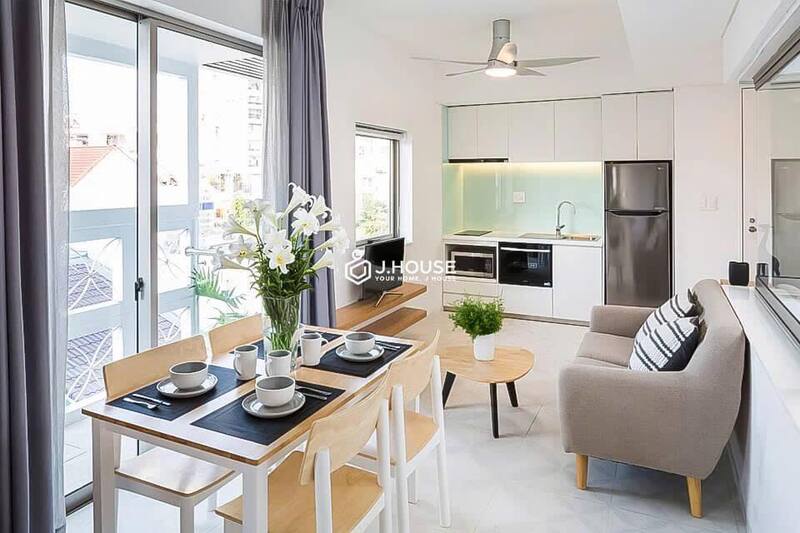
3. Student Dormitories
Several universities in HCMC offer on-campus or nearby dormitories. They’re an affordable choice with a built-in community, making it easy to meet fellow students. However, dorm rooms are usually small and may have shared bathrooms or limited amenities. If you value privacy, this option may require some adjustment.
4. Homestays
Living with a local family offers more than just a place to sleep — it’s a chance to experience Vietnamese daily life up close. You’ll pick up language skills naturally and enjoy home-cooked meals, but you’ll also need to respect house rules and adapt to a family’s routine. For students seeking cultural immersion, this option can be deeply rewarding.
From the independence of a private studio to the warmth of a host family, HCMC’s housing options cater to every student's lifestyle and budget.
Step 3: Shortlist Student-Friendly Neighborhoods Near Your Campus
Where you live shapes your entire student experience in HCMC — from how much you spend each month to how easily you make friends. Here are some of the most popular areas for international students:
- District 1 – The city’s beating heart. Packed with cafés, restaurants, and nightlife, it’s perfect if you thrive in a lively atmosphere. Great for social life, but expect higher rents.
- Binh Thanh District – Affordable, well-connected, and filled with student-friendly housing. Just 10–15 minutes from downtown and close to major campuses.
- District 3 – A blend of local charm and modern amenities. Affordable housing, endless street food, and a laid-back vibe make it a favorite among budget-conscious students.
- Thu Duc City (Districts 2 & 9) – Home to Vietnam National University and ISHCMC. Quieter streets, more green spaces, and plenty of affordable rentals near campus.
- District 7 – Clean, spacious, and highly international. Wide streets, modern facilities, and close to several universities.
Read more: Best Districts in HCMC for International Students
Step 4: Find, Verify & Negotiate Listings for Affordable Student Apartments
With your budget, housing type, and preferred location in mind, it’s time to dive into the search. The right approach can save time, reduce stress, and help you spot the best options quickly. Start by exploring trusted sources — reputable housing websites, student or expat Facebook groups, university notice boards, or agencies specializing in student rentals. Over the years, JHouse has proven especially helpful, guiding countless international students to find apartments that meet their needs and budgets efficiently.
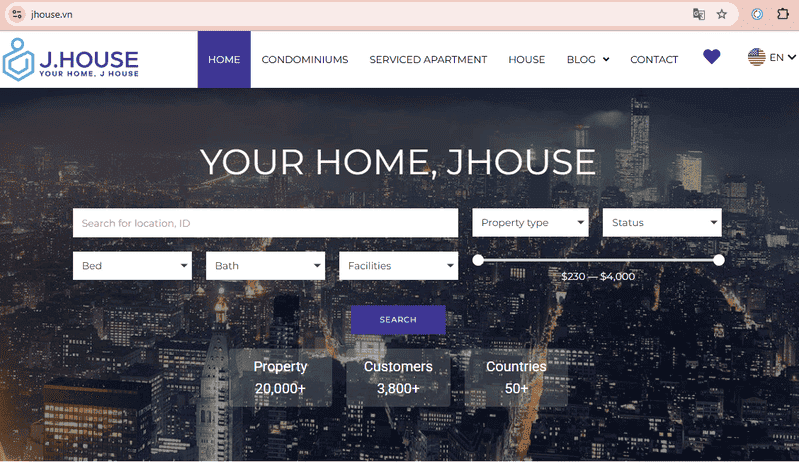
Begin your search 4–6 weeks before the semester, as the most attractive listings move fast. When you find a promising apartment, verify all details: schedule an in-person or live video tour, check furniture and appliances, and confirm what’s included in rent. Don’t forget to factor in transportation, as a distant but cheap apartment may cost more in commuting time and money.
Negotiation is common in Vietnam, so politely ask for lower rent, flexible payment plans, or extra perks, especially if you commit to a longer lease or pay upfront. Always get rental terms in writing to avoid misunderstandings about deposits, fees, or notice periods.
By following these steps, you’ll improve your chances of finding a home that fits your budget, lifestyle, and study goals — without last-minute stress.
Read more: How to Rent Student Apartments in Vietnam: Legal Guide & TipsTip to Live Comfortably on a Student Budget in HCMC
Living in HCMC as an international student can be incredibly rewarding — especially when you find the right balance between cost and comfort. The city is full of opportunities to save money without sacrificing the fun and experiences that make your time abroad memorable. Here are some smart ways to stretch your budget:
- Eat like a local – Enjoy steaming bowls of phở, crispy bánh mì, or fresh spring rolls from street vendors for just a few dollars. Delicious, authentic, and budget-friendly.
- Use public transport – Buses and the new Metro line are cheap, reliable, and a great way to explore the city while keeping daily travel costs low.
- Share resources – From textbooks to cooking appliances, sharing with housemates can cut expenses and build a stronger sense of community.
- Balance leisure and study – Join free or low-cost activities like language exchanges, public park yoga sessions, or student-run cultural events to relax and connect with others.

By making thoughtful choices, you can create a living environment that supports your academic success while allowing you to enjoy everything HCMC has to offer fully.
Read more: Money-Saving Tips for International Students Renting in HCMCFinal Thoughts: Find Your Place in Ho Chi Minh City
Finding the right affordable student apartment in HCMC isn’t just about rent and location — it’s about choosing a home where you feel safe, comfortable, and connected. For international students, that space becomes more than four walls; it’s the backdrop to late-night study sessions, shared meals with friends, and the countless small moments that define your time abroad.
With its variety of budget-friendly housing, welcoming neighborhoods, and vibrant community life, HCMC offers the perfect setting for your university journey. Whether you picture yourself in a lively shared flat in Binh Thanh, a peaceful serviced studio in District 7, or a campus dorm surrounded by classmates in Thu Duc, the right home will shape your entire experience.
So let’s take the first step with JHouse — your trusted guide to finding a place that truly feels like yours. In a city as full of life as Ho Chi Minh, your next chapter is waiting just beyond the doorstep.
JHouse Content Team
The in-depth content development team on housing services for foreigners & Vietnamese in Vietnam. The content is simple, easy to understand, and logically arranged to bring readers useful topics and information from real experiences.
Best Districts in HCMC for International Students
Best Places to Live in HCMC: A Guide for International Students
Moving to Ho Chi Minh City for your studies? The excitement of starting a new chapter comes with the challenge of finding a place to call home in a city that never slows down. Between unfamiliar streets, countless housing options, and varying rental costs, it’s easy to feel overwhelmed. But once you discover a neighborhood that matches your lifestyle, budget, and needs, everything changes — your daily life feels smoother, you feel safer, and you can truly enjoy the city’s vibrant energy.

This guide introduces the best districts in HCMC for international students, helping you understand what each area offers and how it can fit your study life. From neighborhoods close to campuses to those with a lively social scene or peaceful surroundings, you’ll find practical tips to make your move easier — so you can focus on learning, making friends, and embracing every new experience.
Why Choosing the Right District Matters for International Students
In a city as large and diverse as Ho Chi Minh City, where you live isn’t just an address — it’s the foundation of your daily life. The right district can:
- Reduce your commute to school, giving you more time to study and relax.
- Provide easy access to food, markets, and cozy cafes for both convenience and enjoyment.
- Offer a safe, welcoming, and comfortable environment.
- Help you connect with a vibrant community of fellow students and expats.
Pick wisely, and you’ll quickly feel at home, balancing study and leisure with ease. Pick without research, and you might spend months battling traffic, noise, or limited amenities — challenges that can drain your energy and impact your experience. Understanding the Best Districts in HCMC will save you time, money, and unnecessary stress.
Read more: Student Apartments in HCMC: The Ultimate Guide for StudentsBest Districts in HCMC for International Students
From budget-friendly neighborhoods to vibrant city hubs, here’s your guide to the most student-friendly districts in Ho Chi Minh City, complete with local tips and must-know pros and cons.
1. District 1 – Central & Convenient
District 1 is the heart of HCMC — home to famous landmarks, international offices, and countless cafes.

Ideal for: Students who want to be in the center of the action, close to schools and nightlife.
Pros:
- Close to language centers, universities, and cultural attractions like the Opera House and Nguyen Hue Walking Street.
- Wide range of cafes, libraries, and study-friendly spots.
- Easy public transport and ride-hailing access at any time of day.
Considerations:
- Higher rent compared to other districts (serviced apartments often start from $400/month).
- Busy streets, traffic congestion, and more noise — consider quieter side streets or alleyways.
Tip: If you’re on a budget but want the District 1 lifestyle, look for shared apartments or small studios in less touristy areas like Nguyen Van Cu or Tran Hung Dao Street.
2. District 3 – Local Charm Meets Modern Comfort
Located right next to District 1, District 3 combines the energy of the city center with a more relaxed, residential vibe. It’s a well-connected neighborhood that lets you enjoy local life without giving up modern conveniences.
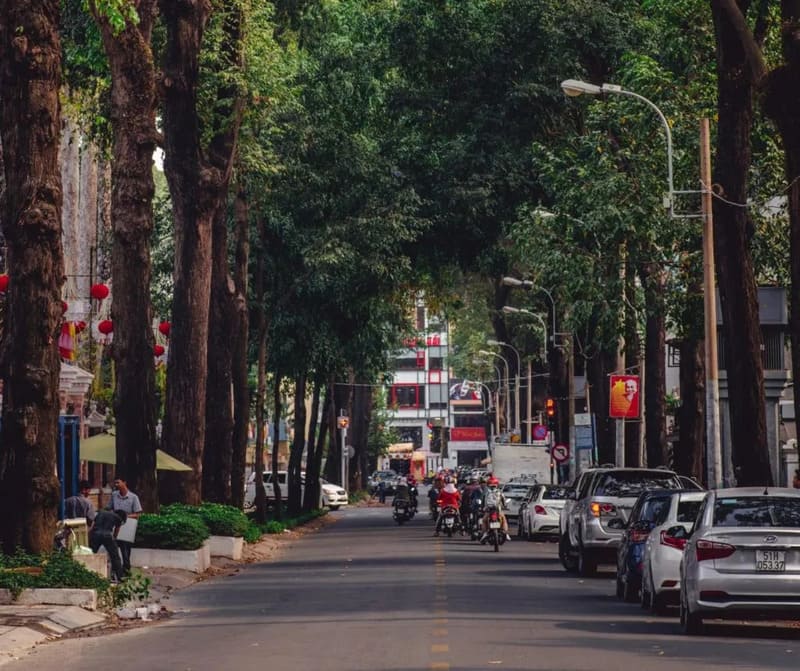
Ideal for: Students who enjoy a quieter, authentic neighborhood but still want quick access to District 1.
Pros:
- More affordable housing than District 1, with many student apartments ranging from $250–$400/month.
- Beautiful tree-lined streets, small parks, and classic French colonial architecture.
- Easy access to District 1, major schools, and cultural sites like the War Remnants Museum.
Considerations: Fewer large malls and nightlife venues compared to central areas.
Tip: District 3 is known for its independent coffee shops and budget-friendly eateries — perfect for study sessions and casual meet-ups with friends.
3. Binh Thanh District – Budget-Friendly & Dynamic
Bordering District 1 and the eastern suburbs, Binh Thanh is a lively district with a strong local vibe and a mix of old and new neighborhoods.

Ideal for: Students seeking affordable accommodation within minutes of the city center.
Pros:
- Lower rent than central districts, with student apartments and shared housing starting from $200–$350/month.
- Bustling local life with street food stalls, traditional markets, and small cafes on almost every corner.
- Convenient access to both the city center and Thu Duc, the university hub.
Considerations:
- Some areas can be crowded, with heavy traffic during rush hours.
- Noise and narrow streets in certain neighborhoods — research specific areas before committing.
Tip: The areas around D2 Street and Pham Van Dong Boulevard offer a good balance of affordability, safety, and access to amenities.
4. Thu Duc City – University Hub
Home to many of Ho Chi Minh City’s top universities, including Vietnam National University and the University of Economics & Law, Thu Duc truly feels like a “student city within the city.”
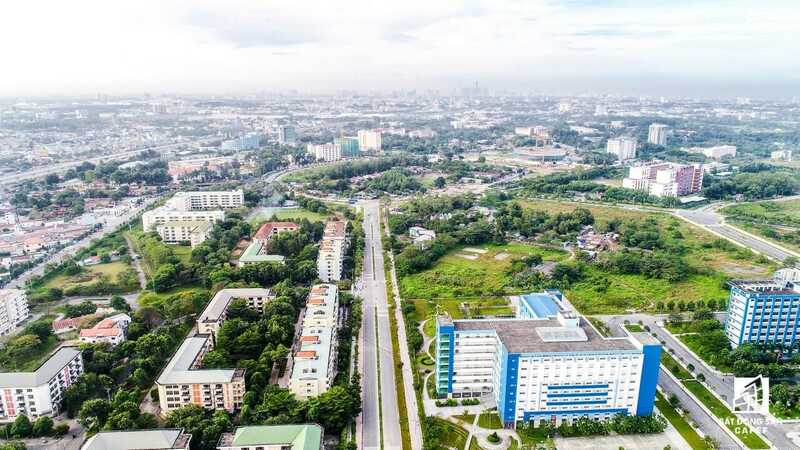
Ideal for: Students studying at universities in Thu Duc or nearby areas who want to minimize commuting time.
Pros:
- Very affordable rent, with student housing and apartments starting from $120–$250/month.
- Large, vibrant student community with endless opportunities to make friends.
- Easy access to campus and a wide range of budget-friendly food options.
Considerations:
- Far from the city center — expect 30–45 minutes by motorbike or bus.
- Fewer high-end amenities and nightlife spots compared to the central districts.
Tip: Choose areas near major roads like Vo Van Ngan or Kha Van Can for easier transport and better access to shops and cafes.
5. District 7 – Modern & International
Known for its clean streets, planned layout, and large expat community, District 7 offers a calm, spacious environment that feels different from the hustle of central HCMC.

Ideal for: Students who prefer a quieter neighborhood with modern conveniences and international vibes.
Pros:
- Modern apartments, serviced residences, and student housing options starting from $350–$600/month.
- International supermarkets, malls like Crescent Mall, and diverse dining options.
- Safe, pedestrian-friendly streets with parks and riverside walking paths.
Considerations:
- Higher cost of living compared to student areas like Thu Duc or Binh Thanh.
- Longer commute to most universities in central districts — around 30–45 minutes by motorbike or bus.
Tip: Look for shared apartments or smaller studios in non-Phu My Hung areas of District 7 to enjoy the benefits of the location at a lower cost.
6. Thao Dien (District 2) – Expat Lifestyle
A long-time favorite among expats, Thao Dien blends Vietnamese charm with Western conveniences, creating a comfortable and community-focused neighborhood. Located just across the Saigon River from District 1, it’s easily accessible via the Thu Thiem Tunnel or Vo Nguyen Giap Street.
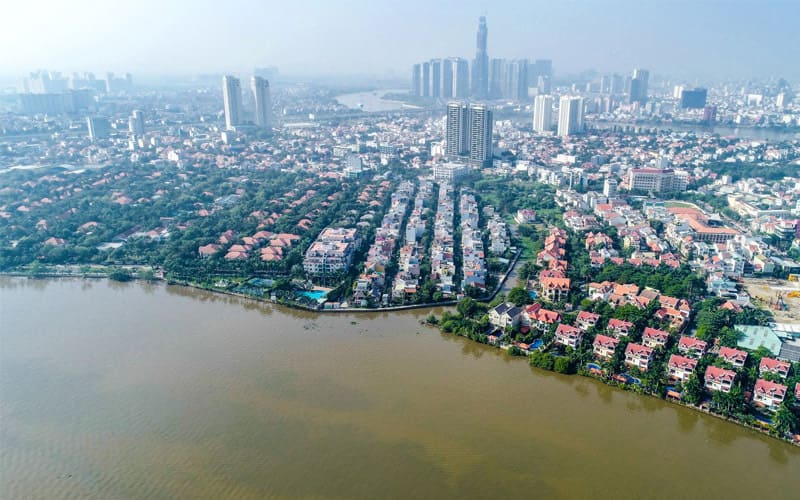
Ideal for: Students who value comfort, a strong community, and an international lifestyle.
Pros:
- Wide range of serviced apartments, shared housing, and coworking spaces — student rentals often start from $400–$700/month.
- International supermarkets, Western and Asian restaurants, and artisan cafes.
- Strong expat community and plenty of English-speaking locals, making it easier to adapt.
Considerations:
- Among the pricier areas in HCMC.
- It can feel like a “bubble,” limiting exposure to authentic local life unless you actively explore other districts.
Tip: Look for apartments in areas closer to Vo Nguyen Giap Street or Metro stations for better connectivity and potentially lower rents.
Read more: Thao Dien – The Ideal Living Paradise in Ho Chi Minh CityFactors to Consider When Choosing Your District
Picking the right neighborhood in Ho Chi Minh City isn’t just about location — it’s about how well it fits your lifestyle and budget as a student. Here are key points to keep in mind:
- Budget: Rental prices can vary widely depending on the area. Find a balance between cost and comfort to secure a place that suits your needs without breaking the bank.
- Proximity to School: Living close to your university saves time and transportation costs, giving you more hours for studying and relaxing.
- Safety: Prioritize neighborhoods with good lighting and active street life. Don’t hesitate to ask current or former tenants about their experiences to get an honest view.
- Amenities & Lifestyle: Do you prefer a lively neighborhood full of cafes and nightlife, or a quiet area with parks and study spots? Choose a district that matches your daily routine and interests.
- Public Transport Access: Check if the area is well connected by buses, Metro (if available), or other public transport options to make your commute easier without relying on private vehicles.
Tips for Finding Housing as an International Student
Finding the right home in a new city can be challenging, especially if you’re new to the city or booking from abroad. These tips will help you avoid common mistakes and settle into a home that truly works for you:
- Start with Short-Term Rentals: Begin with a short-term lease or stay to explore different neighborhoods before committing to a long-term contract.
- Use Trusted Platforms: Look for listings on reputable websites, active Facebook groups, and work with verified agents like JHouse to ensure safe, student-friendly options.
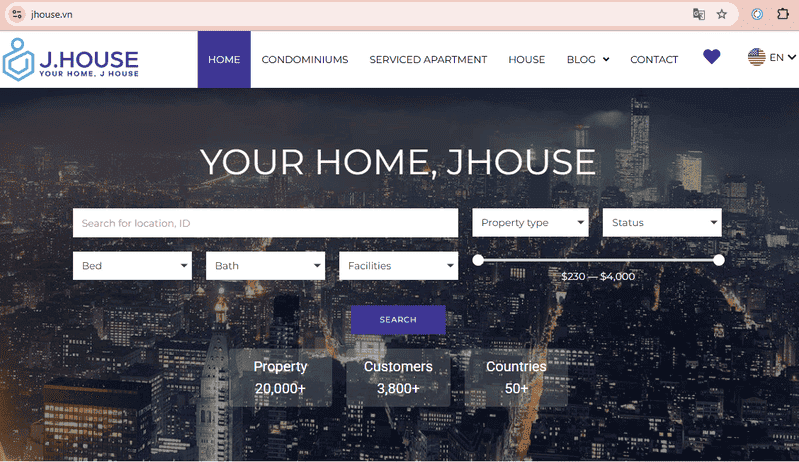
- Request Clear Photos or Video Tours: Especially important if you’re booking from afar — make sure you know exactly what you’re getting before signing anything.
- Review Contracts Carefully: Ensure the lease is clear, ideally in English or with a thorough explanation, covering rent terms, deposits, and maintenance policies.
- Ask Previous Tenants: Whenever possible, get feedback from former renters about their experience with the landlord and the property.
Final Thoughts – Make HCMC Your Second Home
Your choice of district shapes not just your daily routine but your entire experience living in Ho Chi Minh City. Whether you love the vibrant buzz of District 1, the budget-friendly charm of Binh Thanh, or the peaceful vibe of District 7, the right neighborhood offers more than a place to stay — it becomes the backdrop for friendships, adventures, and growth.
Finding the perfect home can be overwhelming in a busy city like HCMC. That’s where trusted local experts can make all the difference. At JHouse, we assist international students in finding safe, comfortable, and student-friendly accommodations tailored to their needs and budgets — guiding you through every step so you can settle in quickly and focus on your new life here.
Let’s start your journey with a place that feels like home and open the door to all the new experiences and opportunities waiting for you in HCMC.
JHouse Content Team
The in-depth content development team on housing services for foreigners & Vietnamese in Vietnam. The content is simple, easy to understand, and logically arranged to bring readers useful topics and information from real experiences.
Long-Term Living in Vietnam: A Settling Guide for Expats & Families
Long-Term Living in Vietnam Starts Here
Long-term living in Vietnam isn’t just an extended vacation — it’s a conscious decision to build something real. From dynamic cities to peaceful coastlines, Vietnam is no longer a stopgap for travelers but a thriving home base for professionals, families, creatives, and retirees alike.

Affordable living, expanding infrastructure, and a deep cultural soul make it one of Southeast Asia’s most compelling places to stay — and stay long.
But turning a new country into your home takes more than good intentions. It takes strategy, local insight, and the right foundation. Whether you're here for career growth, family life, or personal reinvention, this guide is your roadmap to not just settling — but thriving. From legal logistics to lifestyle choices, we’ll walk you through what it truly means to live — and live well — in Vietnam.
A Mindset Shift: From Visitor to Resident
Long-term living doesn’t start with a visa — it starts with a shift in mindset. You’re no longer a visitor passing through; you’re shaping a life. That means letting go of comparisons, embracing new rhythms, and redefining what “home” means to you in this context.
Living well in Vietnam isn’t about recreating your old lifestyle — it’s about building something better, right where you are. That journey begins with asking yourself:
- What does a fulfilling life in Vietnam look like for me?
- Am I seeking community, opportunity, stability — or all of the above?
- How can I grow while contributing to the place I now call home?
Answering these honestly is what transforms relocation into belonging. That’s the mindset that carries you from settling in… to truly settling down.
Read more: Step-by-Step: How to Settle in Vietnam as a New Expat
1. Visa, Work Permit & TRC: Secure Your Legal Foundation
The foundation of long-term living isn’t housing or banking — it’s legal stability. Vietnam offers several visa options, but choosing the right one isn’t just paperwork — it’s a strategic decision that affects every part of your life here.
Pick wisely, and you’ll unlock smoother banking, housing, and residency processes. Pick carelessly, and you may find yourself stuck in a loop of visa runs and missed opportunities.
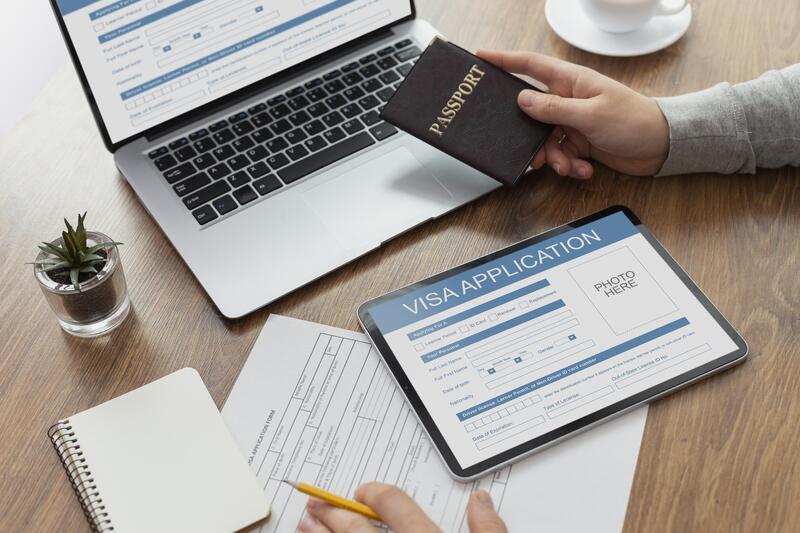
Here are the most common pathways for long-term expats:
- Work Visa (LD) + Work Permit: For professionals employed by Vietnamese companies.
- Investor Visa (DT): For those setting up or investing in businesses.
- Family Visa (TT); For spouses or dependents of Vietnamese citizens.
- TRC (Temporary Residence Card): Grants 1–5 years of renewable stay with fewer hassles.
Note: Immigration rules shift quickly. Work with a licensed agent or legal advisor to future-proof your stay.
Read more: Long-Term Visa, Work Permit & TRC in Vietnam: What You Need to Know
2. Choose the Right Place to Live: Cities & Neighborhoods that Fit
Where you live shapes how you live. The right city doesn’t just offer amenities — it aligns with your energy, values, and long-term goals. Choose a place that supports the lifestyle you want to build — not just where the rent looks affordable on paper.
Which City Fits You Best?
| City | Ideal For | Strengths | Trade-Offs |
| Ho Chi Minh City | Ambitious professionals, families | Career growth, global schools, vibrant energy | Traffic, noise, air pollution |
| Hanoi | Educators, diplomats, culture-seekers | Heritage streets, lake walks, cooler weather | Slower pace, bureaucratic hurdles |
| Da Nang | Remote workers, retirees | Beachfront living, fresh air, flexible lifestyle | Smaller expat network |
| Hoi An, Da Lat | Creatives, slow-living expats | Artistic charm, peace, affordability | Limited healthcare, fewer jobs |
Tip: Think of your first few months as a scouting mission. Rent short-term, explore deeply, then commit with confidence.
Explore more: Best Districts in HCMC for Long-Term Expats
3. Secure a Home That Fits: Safe, Comfortable, No Guesswork
Where you live isn’t just your address — it’s the emotional stage for your new chapter. Pick the wrong place, and small problems pile up. Pick the right one, and daily life becomes smoother, more grounded, and more you.
Vietnam’s housing market is more flexible and affordable than many expect. Here’s a quick guide to what’s out there:
- Serviced apartments — move-in ready, perfect for newcomers easing in.
- Condos — secure, modern, and well-suited for couples or small families.
- Shared housing — budget-friendly and community-oriented, ideal for solo expats or digital nomads.
- Villas — private, spacious, and perfect for families craving outdoor space and comfort.
At JHouse, we go beyond listings. We simplify the housing journey — protecting you from unclear terms, hidden costs, and communication breakdowns. We help you move in with confidence.
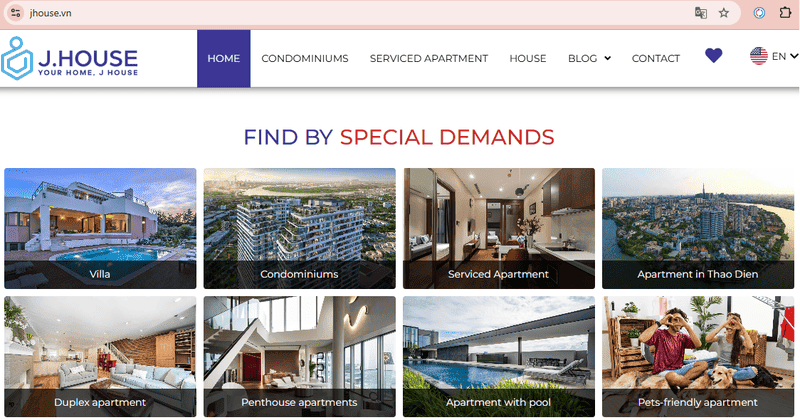
Read more: JHouse – Where Great Homes Meet Great People
4. Build a Budget That Reflects Real Life in Vietnam
Yes, Vietnam is affordable — but affordability without intention becomes waste. The key to staying long-term isn’t cutting costs to the bone — it’s spending with clarity and flexibility.
Here’s a rough monthly estimate (for a single expat in a major city):
| Expense | Cost (USD) |
| Rent (1BR apartment) | $400–$800 |
| Utilities & Internet | $50–$100 |
| Food & Dining | $200–$400 |
| Transportation | $30–$80 |
| Healthcare Insurance | $50–$150 |
Estimated monthly range: $700–$1,500, depending on your lifestyle and location. Higher in expat-focused areas like Thao Dien (HCMC) or Tay Ho (Hanoi).
Living well doesn’t mean living large. A smart budget includes buffer zones — for visa renewals, medical emergencies, weekend travel, or that occasional imported treat. Long-term success isn’t about spending less — it’s about spending right.
Read more: Long-Term Budgeting in Vietnam: Monthly Costs & Smart Saving Tips
5. Healthcare: Stay Protected, Stay Informed
5.1. Healthcare in Vietnam: What Expats Can Expect
Vietnam’s healthcare system is evolving — and that’s good news for expats. While public hospitals have improved in recent years, especially in large cities, challenges like long wait times, limited English support, and complex procedures still make them a tough option for most foreigners. That’s why the majority of long-term expats rely on private hospitals and clinics, where care is faster, service is bilingual, and quality standards often match international expectations.
When you first arrive in Vietnam, finding a nearby clinic feels like enough. But long-term living demands more than urgent care — it calls for a health strategy.

Here are some top-tier facilities trusted by the expat community:
- FV Hospital (Ho Chi Minh City) – French-managed, full-spectrum care with international accreditation
- Family Medical Practice (HCMC, Hanoi, Da Nang) – 24/7 service, expat-focused, English-speaking doctors
- Raffles Medical (Hanoi) – Trusted by embassies and international businesses
- Vinmec & Hoan My (nationwide) – Leading private chains with growing English-language services
Expect to pay $30–$60 per visit. Some clinics offer direct billing, but most require upfront payment — another reason why solid insurance matters.
5.2. Choosing the Right Health Insurance Plan
Health insurance in Vietnam isn’t only about emergencies — it’s peace of mind for real life. Most expats opt for one of these:
- International plans (e.g. Cigna, Allianz): Ideal for families, business travelers, or retirees who want worldwide coverage
- Local expat-focused plans (e.g. Pacific Cross Vietnam): More affordable, reliable for those staying long-term within Vietnam
Before choosing, ask yourself:
- Will I need maternity or dental care?
- Do I travel often or mostly stay in Vietnam?
- Am I covered for chronic or pre-existing conditions?
Long-term stability means being prepared. A thoughtful health plan helps you live boldly — without second-guessing what happens if things go wrong.
Explore more: Healthcare in Vietnam for Expats: Insurance & Hospital Tips
6. Banking & Connectivity: Take Control of Your Daily Infrastructure
As your life in Vietnam shifts from short-term stay to long-term living, it’s time to take ownership of the systems that power your daily life — especially banking and digital connectivity.
Opening a local bank account isn’t just about convenience — it’s about full integration. You’ll typically need:
- Your passport
- A valid visa or TRC (Temporary Residence Card)
- Proof of address or an employment contract (depending on the bank)
Top picks for expats include Vietcombank, ACB, and Techcombank — with wide ATM networks and basic English support. You can also link your account to Momo or ZaloPay for seamless daily payments.

As your needs grow, so should your digital setup. Many start with a prepaid SIM and rental Wi-Fi, but that won’t cut it forever. For reliable access — especially for work or family — upgrade to a postpaid plan and consider setting up your own FPT or Viettel internet line.
Long-term living isn’t about using what’s already there — it’s about building what truly works for you.
Explore more: Open a Bank Account in Vietnam: A Guide for Expats
7. Raise a Family with Confidence and a Global Perspective
Raising kids abroad has never been a simple decision — but in Vietnam, it’s becoming a rewarding one. With a growing network of international schools, family-friendly neighborhoods, and access to both modern amenities and cultural depth, Vietnam is now home to a rising number of expat families.
What makes it work?
- World-class education: From ISHCMC and BIS to UNIS Hanoi, Vietnam offers a wide range of schools following international curricula.
- Ideal neighborhoods: Areas like Thao Dien, District 7, Tay Ho, or An Thuong (Da Nang) provide safety, green spaces, and community support.
- Weekend escapes: Beaches, national parks, and mountain retreats are just a few hours away — perfect for quality family time.
Expat parents often say Vietnam is where their children truly become third-culture kids — growing up global, adaptable, and open-minded.
Read more: Raising Kids in HCMC: Guide for Long-Term Expat Families
8. Find Your Community: Connection Is the Real Lifeline
In the short term, the community helps you settle. In the long run, it helps you thrive.
You can rent a house and get a job — but without a connection, Vietnam won’t feel like home. For long-term expats, community becomes more than a source of company — it becomes your support system, your safety net, and sometimes, your chosen family.
Whether you're an entrepreneur, a young couple, or a family raising third-culture kids, your experience here will be shaped by the people around you.
Where to begin building a real connection:
- Facebook groups like Expats in HCMC, Hanoi Massive, and Da Nang Expats are great for sharing advice, finding events, or meeting people nearby.
- Co-working spaces such as The Hive, Toong, and CirCO often host talks, socials, and networking nights.
- Apps like InterNations, Meetup, and Bumble BFF are perfect for connecting with people who share your lifestyle or interests.
- Hobby groups and volunteer networks — yoga, hiking, book clubs, charity work — foster deeper, purpose-driven friendships.
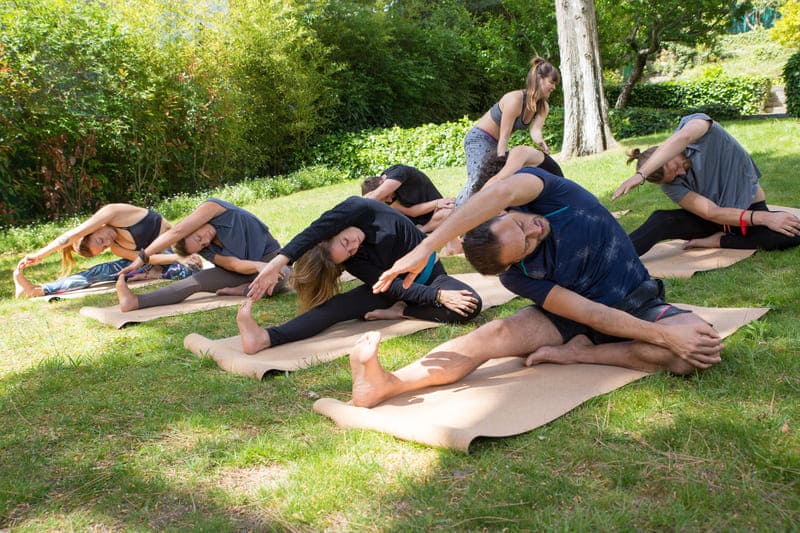
Shared passions spark friendships — but showing up consistently turns strangers into family.
Read more: Finding Your Tribe: Join Expat Communities in Ho Chi Minh City
9. Overcome the Challenges of Long-Term Living
Living abroad isn’t always postcard-perfect — and that’s okay. Even the most seasoned expats face frustration with visa renewals, bureaucracy, language gaps, or cultural disconnects.
But here’s the truth: The longer you stay, the more these obstacles turn into lessons — and those lessons become the foundation of resilience.
How to navigate the rough patches:
- Stay informed: Regulations change often. Subscribe to local expat news or follow embassy updates.
- Ask for help: Don’t hesitate to lean on Facebook communities, visa agents, or bilingual friends.
- Embrace cultural humility: Misunderstandings happen. Lead with curiosity, not judgment.
- Build local relationships: They’ll open doors faster than paperwork ever could.
Challenge is part of the expat path — but so is growth. The hard moments are what transform your stay from temporary to transformative.
Explore more: Long-Term Living in Vietnam: Top Challenges & How to Overcome
10. Think Beyond Renting: Should You Invest in Property?
At some point, many long-term expats ask a deeper question: Is this just where I live — or is this home?
For those ready to deepen their roots in Vietnam, buying property is more than a financial decision — it’s a declaration of belonging.

Yes, foreigners can buy:
- Condos in approved developments (50-year leaseholds, with renewal)
- Landed homes through Vietnamese spouses or company structures (more complex)
But challenges remain:
- Legal grey areas, shifting policies, and foreign ownership quotas
- A need for due diligence, legal clarity, and local insight
Note: Always work with a trusted real estate agent and a local lawyer who understands expat-specific concerns.
Whether or not you choose to buy, just asking the question means something: you’re no longer just passing through — you’re planting roots.
Explore more: From Tenant to Investor: Should Expats Buy Property in Vietnam?
Final Thoughts: From Stay to Belonging
There’s a moment when Vietnam stops being where you live — and starts becoming where you belong.
Long-term life here isn’t just about getting a visa, renting an apartment, or finding the nearest supermarket. It’s about building something lasting: a sense of rhythm, community, and personal meaning.
Whether you're a solo professional chasing growth, a couple building a future, or a family giving your kids a global childhood — Vietnam has room for your story.
At JHouse, we’ve helped hundreds of expats not just find housing — but feel truly settled. We understand the doubts, the dreams, and the turning points. Our role is to make your home search simple and trustworthy — so you can focus on building a life that’s fully your own.
Let Vietnam be more than your next stop. Let it be your next chapter — and your home.
JHouse Content Team
The in-depth content development team on housing services for foreigners & Vietnamese in Vietnam. The content is simple, easy to understand, and logically arranged to bring readers useful topics and information from real experiences.
Long-Term Living in Vietnam: Top Challenges & How to Overcome
Living in Vietnam as an Expat: Top Challenges & How to Thrive Long-Term
Long-term living in Vietnam is a dream for many expats—yet the reality comes with hurdles that can surprise even seasoned travelers. From visa headaches and housing confusion to cultural misunderstandings and language gaps, settling in for the long haul takes more than packing your bags. It takes patience, flexibility, and a willingness to step far outside your comfort zone.

Still, for those who embrace the process, Vietnam offers a deeply rewarding lifestyle—filled with warmth, affordability, and a vibrant sense of community. Whether you're looking to stay for a few years or build a new life entirely, the right insights and mindset can make all the difference.
Let’s dive into the real-life challenges long-term expats face—and how to overcome them with confidence, connection, and clarity.
Visas, Work Permits & TRCs: What You Must Know First
Before you can truly settle in, there’s one thing you need to get right: paperwork. Understanding Vietnam’s visa types, work permits, and TRCs (Temporary Residence Cards) is essential for any long-term expat. Many newcomers are surprised by how complex the process is—and how different it can be from their home countries.
From tourist visas with limited extensions to employer-sponsored work permits, the maze of legal documents can be stressful without proper guidance.
How to overcome it
- Partner with a local visa agency or employer for reliable, legal support.
- Explore long-term options like TRCs, investor visas, or spousal routes.
- Avoid overstays—penalties are severe and may affect future entries.
If you're planning long-term living in Vietnam, sorting your visa early is key. It’s the legal and emotional foundation of your new life abroad.
Read more: Long-Term Visa, Work Permit & TRC in Vietnam: What You Need to Know
Culture Shock Is Real: Embrace, Don’t Resist
The vibrant chaos of Vietnam is part of its charm—but also a major source of culture shock for many new expats. Motorbike-packed streets, fluid timekeeping, and unspoken social rules can feel overwhelming.
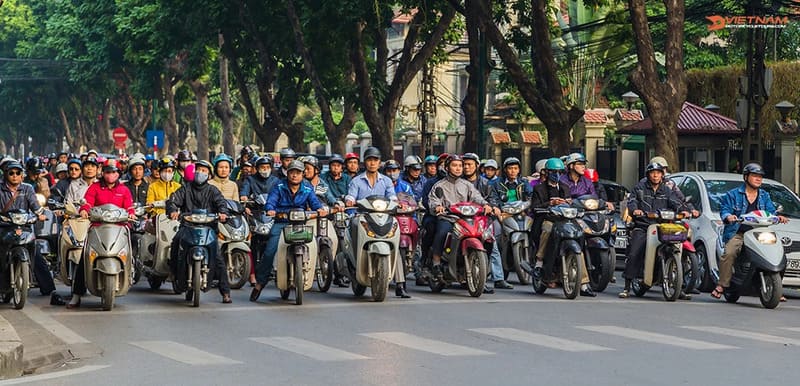
Many also struggle with indirect communication or the importance of hierarchy and saving face, especially in workplaces.
How to overcome it
- Treat every moment as a cultural lesson, not a personal frustration.
- Ask locals about social etiquette—they’re usually happy to explain.
- Join culture-focused expat groups or take classes to better understand the Vietnamese mindset.
Adaptation takes time. But with curiosity and openness, you’ll shift from confused to connected—and discover how those differences make life here so unique.
Read more: Step-by-Step: How to Settle in Vietnam as a New Expat
Overcoming the Language Barrier in Vietnam
When living in local neighborhoods, English proficiency is limited. Simple tasks—like ordering food, signing a lease, or troubleshooting your Wi-Fi—can become unexpectedly stressful without some knowledge of Vietnamese. Even hailing a ride or asking for directions might turn into a game of gestures and guessing.
How to overcome it
- Learn survival Vietnamese early on: greetings, numbers, basic food items, directions.
- Use translation apps, but don’t rely on them entirely.
- Take language lessons—it shows respect and builds confidence.
- Hire a bilingual assistant for complex issues like legal documents or rental contracts.
Over time, the language barrier becomes less of a wall and more of a bridge—deepening your connection to Vietnam and making each day a little smoother.
Expat Housing in Vietnam: Avoiding Common Pitfalls
Vietnam’s housing options are abundant—but for long-term expats, they can feel like a maze. From luxury condos in District 1 to boutique serviced apartments in Thao Dien, there’s something for every taste. The problem? Many listings online are outdated or misleading. You might fall for photos that don’t match reality—or get lost in translation with landlords or brokers.
How to overcome it
- Work with a trusted expat-focused housing agency like JHouse.
- Visit multiple units before committing.
- Ask about noise levels, landlord responsiveness, and monthly utility costs.
- Get everything in writing—especially for leases over 6 months.
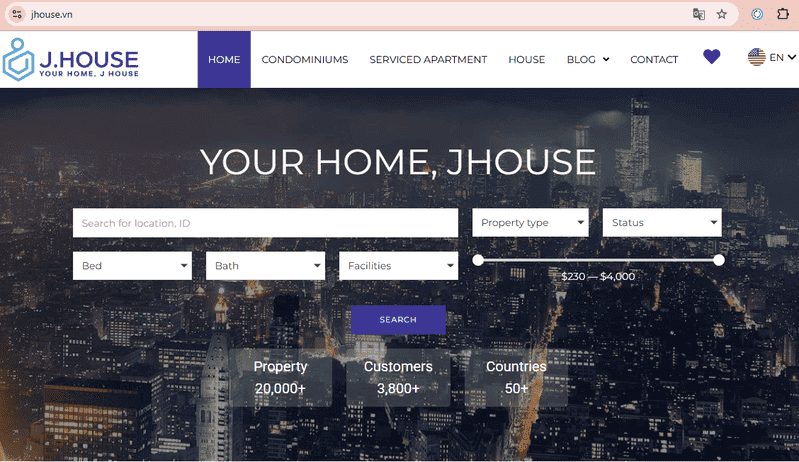
Finding the right home is essential to living in Vietnam as an expat. It’s not just about comfort—it’s about peace of mind in a brand-new country.
Read more: Best Districts in HCMC for Long-Term Expats
Healthcare & Insurance for Expats in Vietnam: Gaps You Can’t Afford to Ignore
Vietnam offers decent healthcare in major cities—but for foreigners, the system can feel confusing and inconsistent. Local clinics vary widely in quality, and language barriers often make communication difficult. Emergency treatment, prescriptions, and insurance reimbursements can become stressful, especially during urgent situations.
How to overcome it
- Choose international hospitals for serious issues (e.g., FV, Family Medical Practice, Vinmec).
- Buy private expat health insurance as early as possible.
- Keep digital copies of prescriptions and health documents.
- Always request English-speaking doctors or bring a trusted translator.
Health is wealth—especially abroad. Prioritizing reliable care makes long-term living in Vietnam safer, more stable, and far less stressful.
Read more: Healthcare in Vietnam for Expats: Insurance & Hospital Tips
Building a Social Life: From Stranger to Community Member
Moving abroad can be exciting—but also deeply isolating. You land in a new city, set up your apartment, and then realize: you don’t know anyone. Without familiar routines or friendly faces, even daily life can feel overwhelming. That’s why, for long-term expats, building a social circle isn’t optional—it’s essential for mental and emotional well-being.
How to overcome it
- Join expat Facebook groups or attend local community events.
- Try language exchanges, networking nights, or volunteering opportunities.
- Explore hobby-based meetups: sports leagues, yoga, art, or cooking classes.
- Say “yes” to social invites—even if it feels awkward at first.
- Use apps like Meetup or Internations to discover active communities.

Whether you're in Ho Chi Minh City, Da Nang, or Hanoi, welcoming groups are out there. You don’t need to fit in immediately—just show up and start somewhere.
Read more: Finding Your Tribe: Join Expat Communities in Ho Chi Minh City
Managing Work and Money as an Expat in Vietnam
Whether you’re a remote worker, teacher, entrepreneur, or freelancer, Vietnam offers opportunity—but also financial unpredictability.
Under-the-table payments, slow transfers, unclear tax rules, or unfamiliar business laws can complicate your goals of long-term stability. Many expats underestimate how essential financial clarity becomes over time.
How to overcome it
- Open a local bank account to receive payments efficiently (some require a TRC).
- Use international tools like Wise or Remitly for cross-border transfers.
- Track monthly costs and manage your long-term budgeting in Vietnam.
- Consult with a local accountant or business expert if you plan to earn income locally.
Money shouldn’t be a mystery. The more control you gain, the more freedom and security you’ll enjoy in your expat journey.
Read more: Long-Term Budgeting in Vietnam: Monthly Costs & Smart Saving Tips
Vietnamese Lifestyle for Expats: How to Adapt with Ease
Vietnam’s pace is fast, loud, and wonderfully unfiltered. Streets pulse with life at every hour. Schedules shift last minute, rules are open to interpretation, and plans rarely go exactly as expected.
Your Grab driver might cancel twice. Your landlord may show up early—or late. And yet, underneath that unpredictability is a country bursting with generosity, resilience, and community spirit.

How to overcome it
- Let go of control—you’re in a new rhythm now.
- Focus on what works, not what’s missing.
- Practice patience—it’s a superpower in Vietnam.
- Embrace Vietnamese food, fashion, and traditions—it deepens your joy.
The more you move with the flow instead of resisting it, the more you'll find beauty in Vietnam’s unpredictability—and fall in love with the life it brings.
Read more: Long-Term Living in Vietnam: A Settling Guide for Expats & Families
Final Thoughts: Ready to Embrace Long-Term Living in Vietnam?
Long-term living in Vietnam isn’t just about visas and apartments—it’s about resilience, growth, and transformation. The challenges are real—but so are the rewards. With time, support, and a willingness to adapt, Vietnam becomes more than a destination. It becomes a lifestyle—rooted in connection, discovery, and daily moments that shape who you are becoming.
At JHouse, we’ve helped hundreds of expats not only find housing but also build lives full of meaning and connection in this vibrant country. Whether you’re new or already a few years in, we’re here to make your journey smoother, more confident, and more fulfilling—one real home at a time. Because in the end, long-term living isn’t about simply staying—it’s about belonging.
Let Vietnam challenge you. Let it change you. And most of all—let it welcome you home.
Visit JHouse to explore trusted expat-friendly homes and start your long-term life with confidence.
JHouse Content Team
The in-depth content development team on housing services for foreigners & Vietnamese in Vietnam. The content is simple, easy to understand, and logically arranged to bring readers useful topics and information from real experiences.






